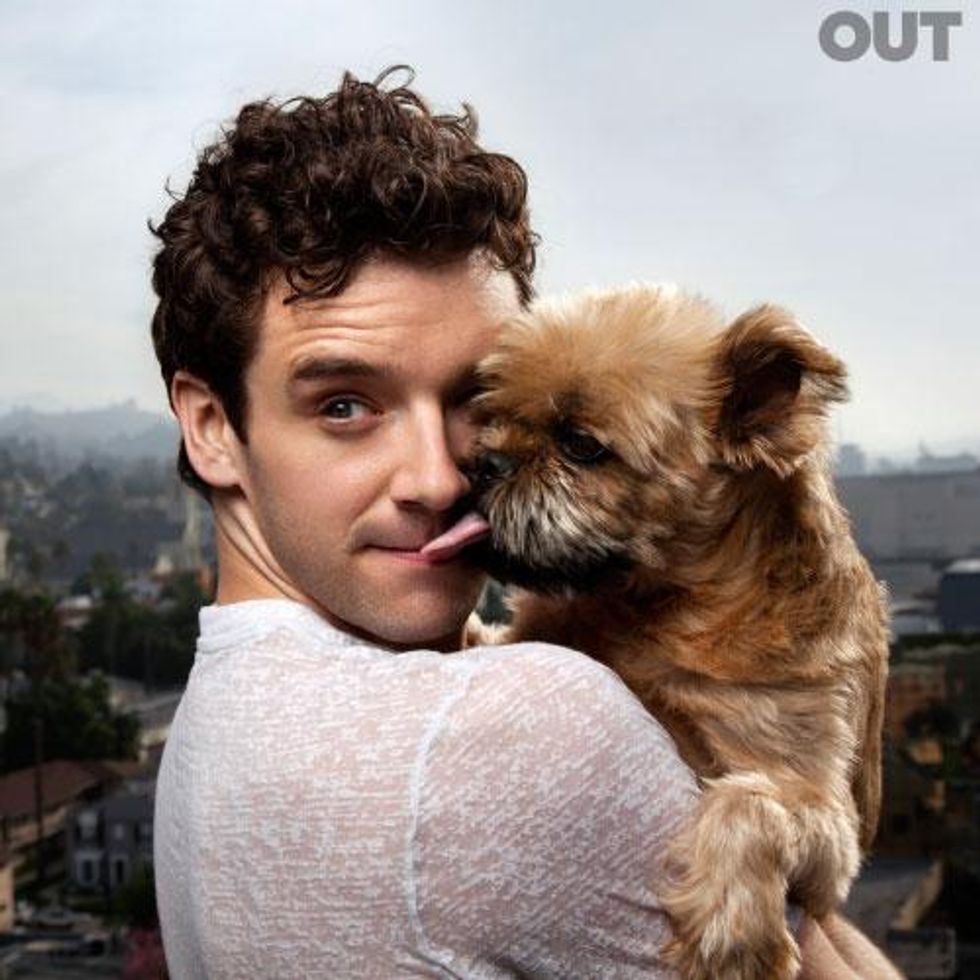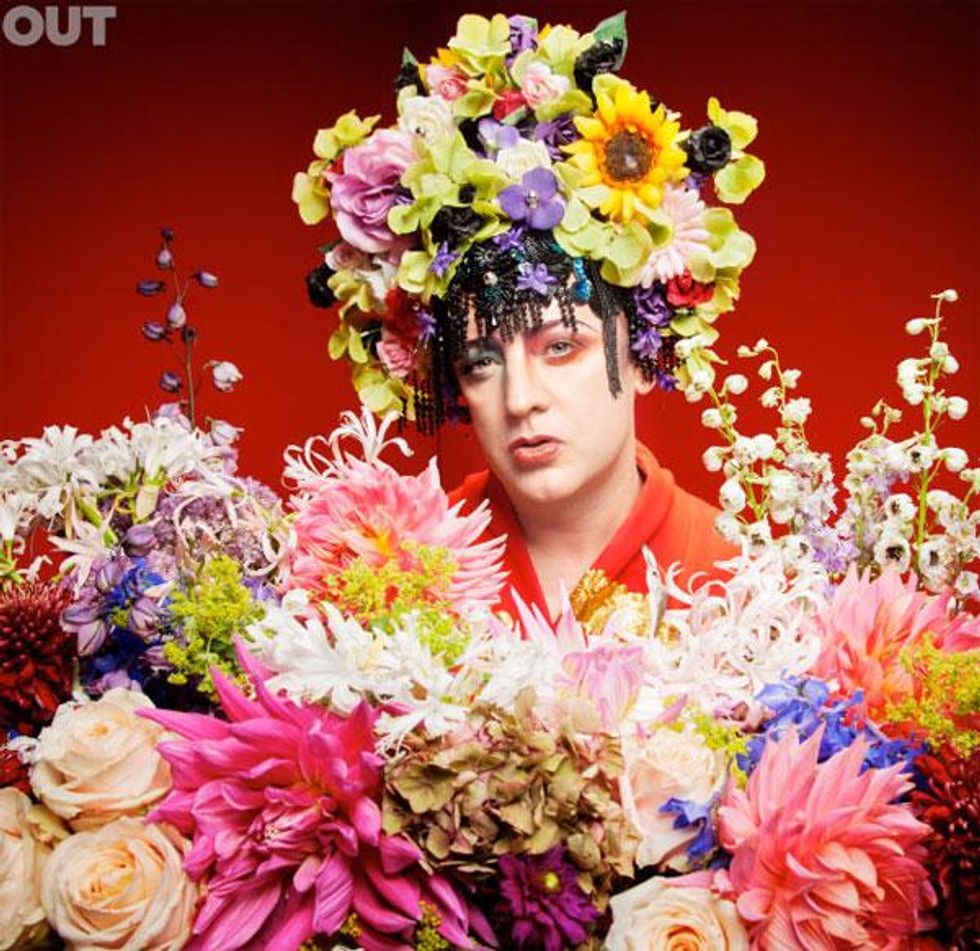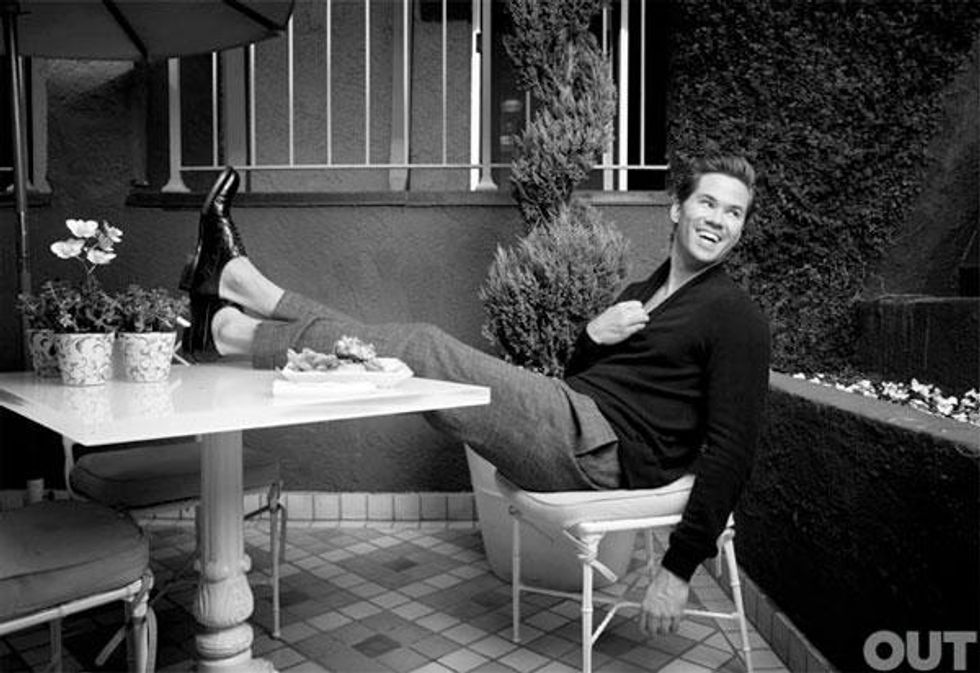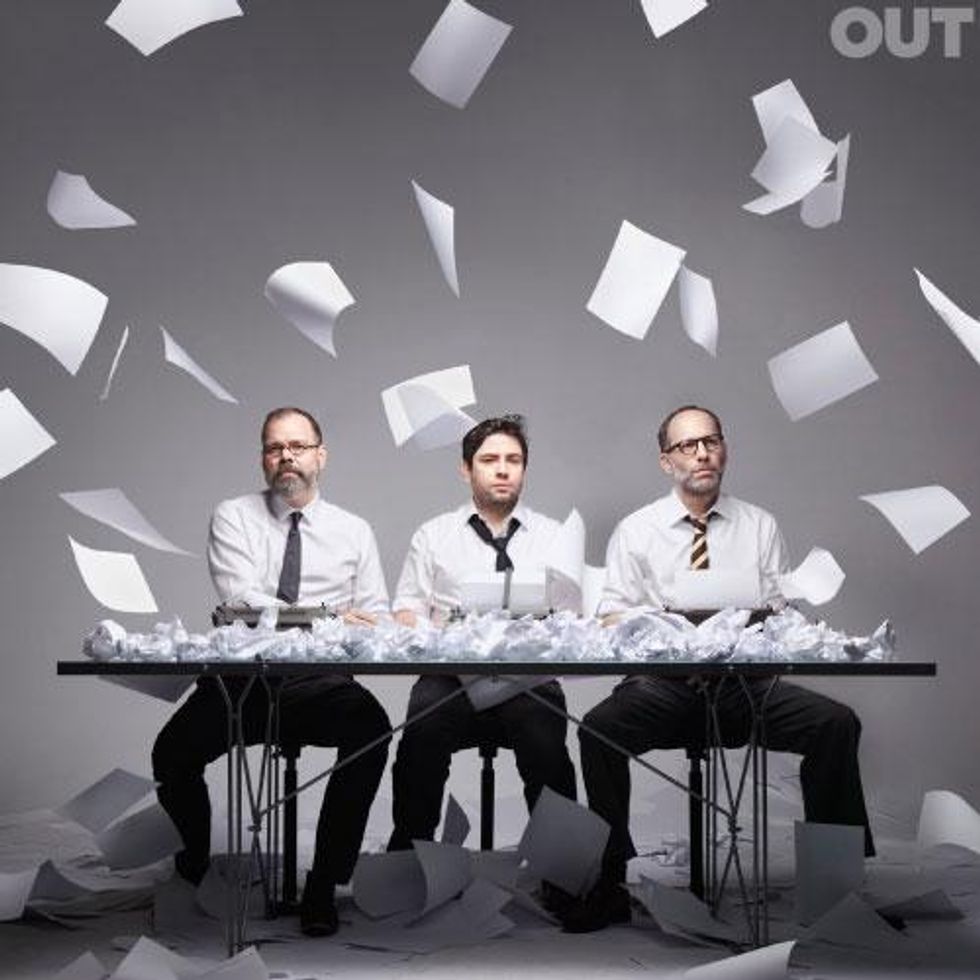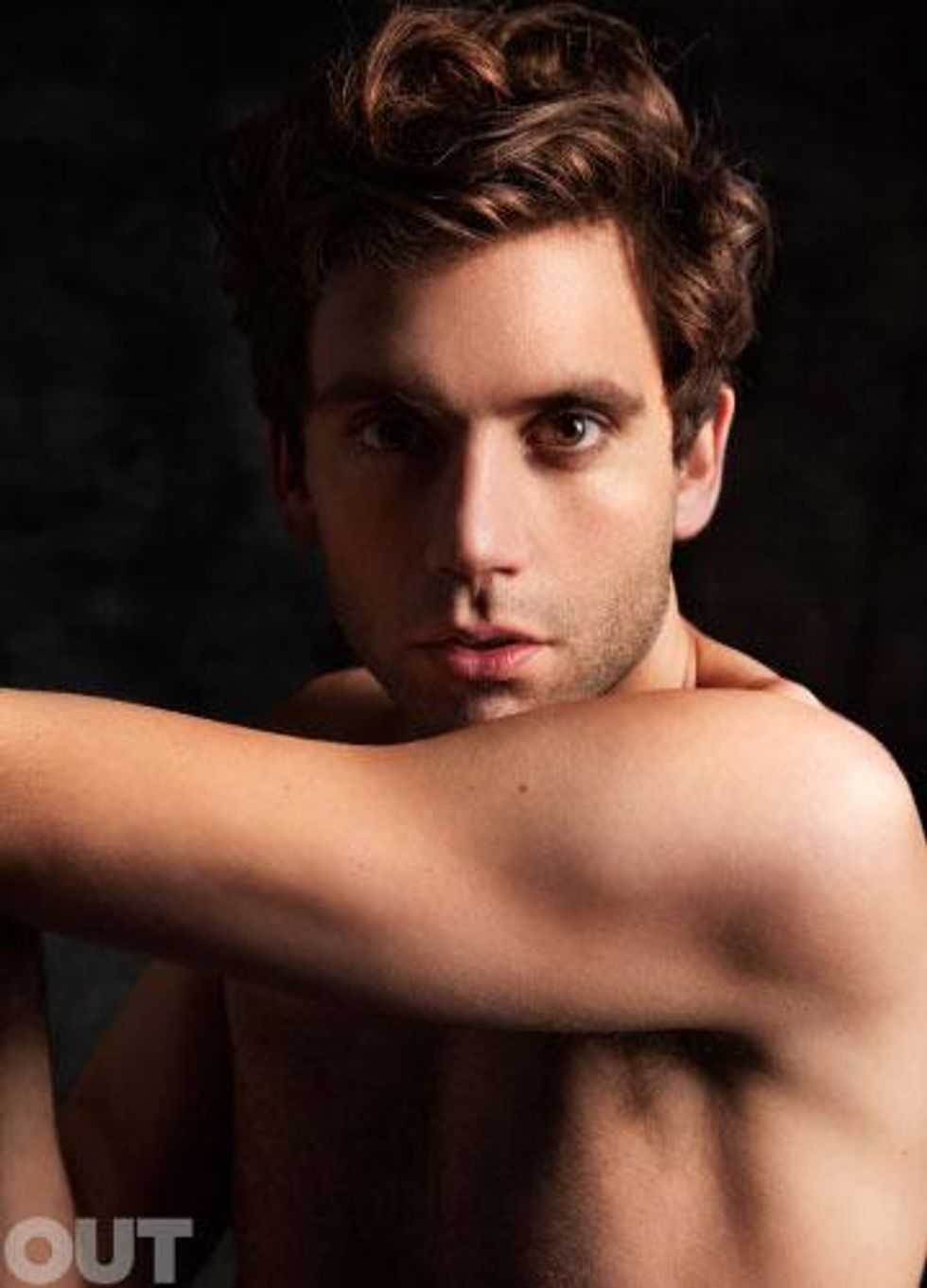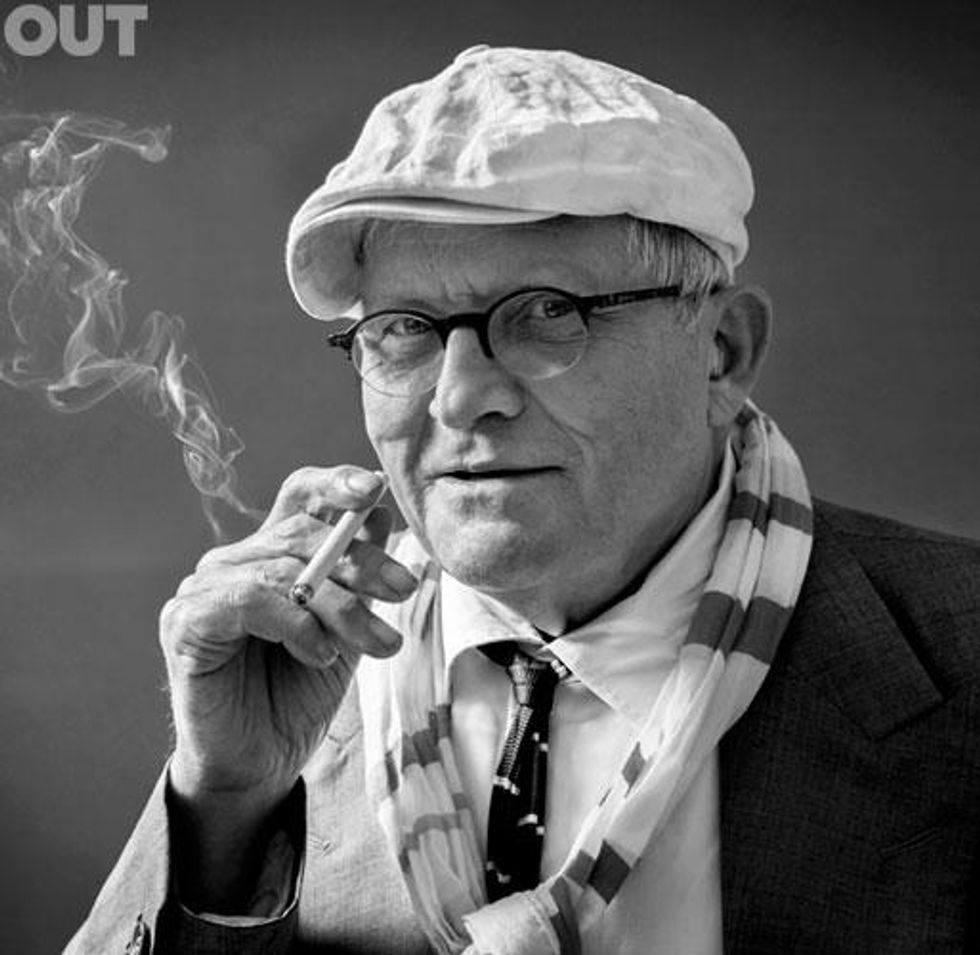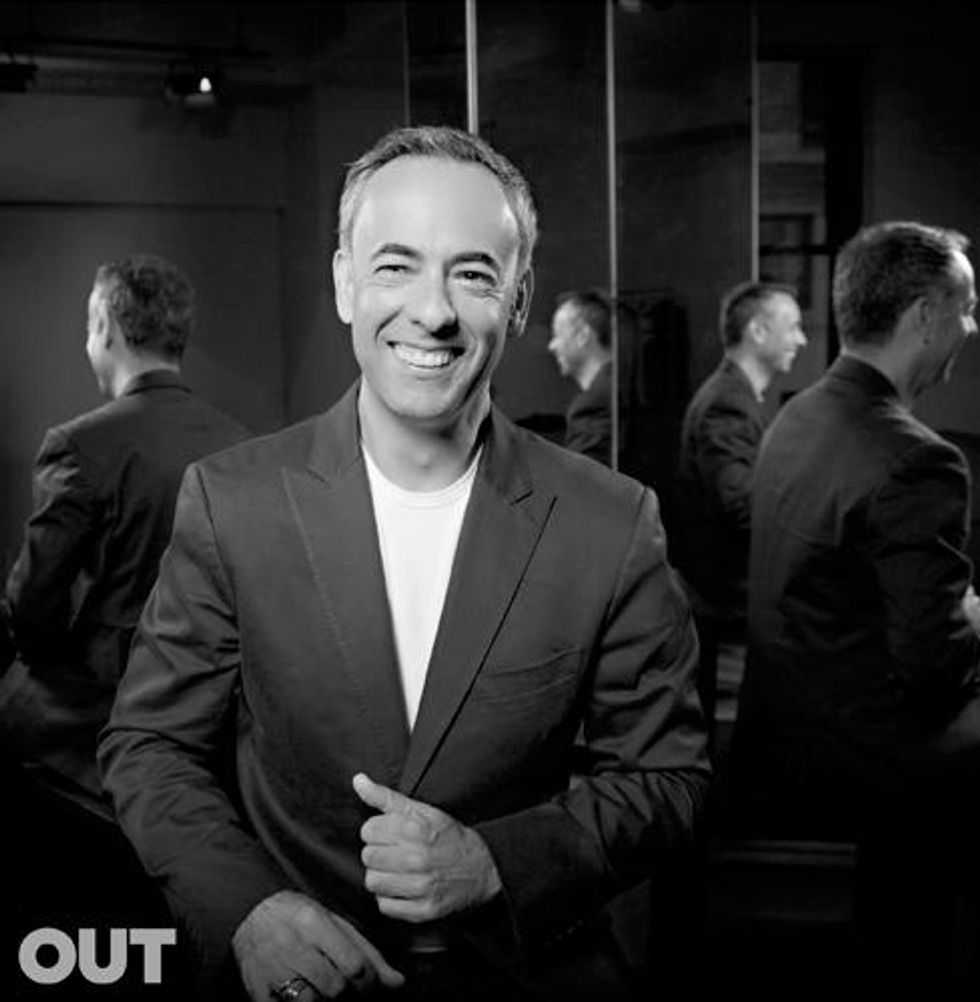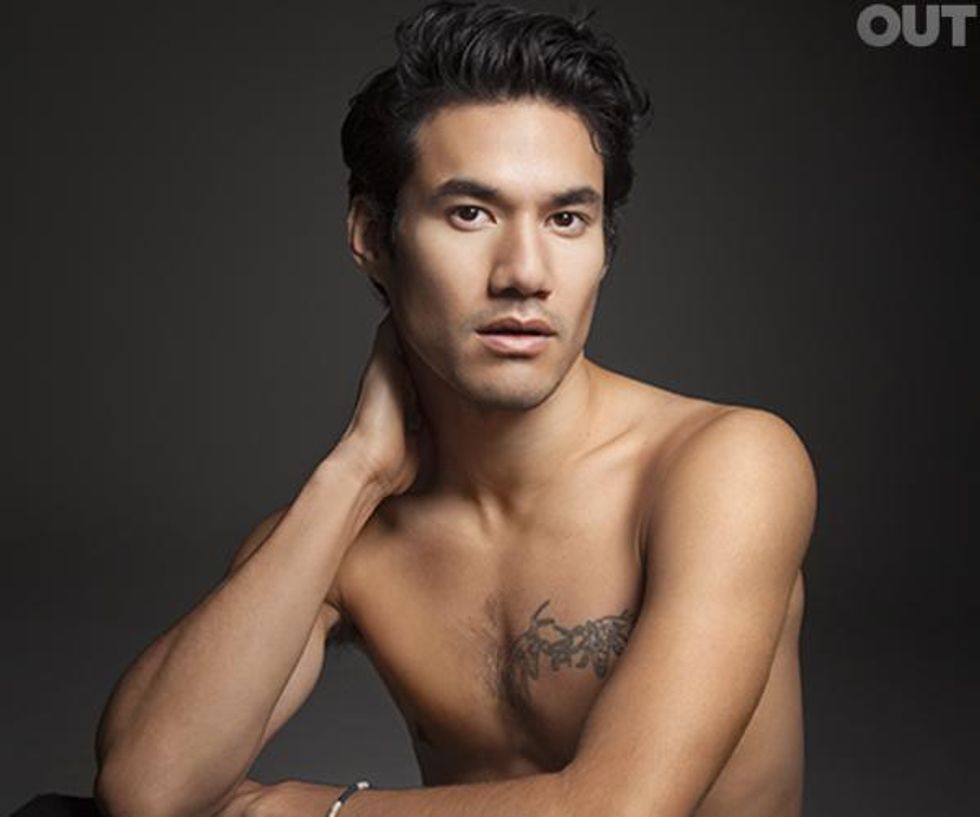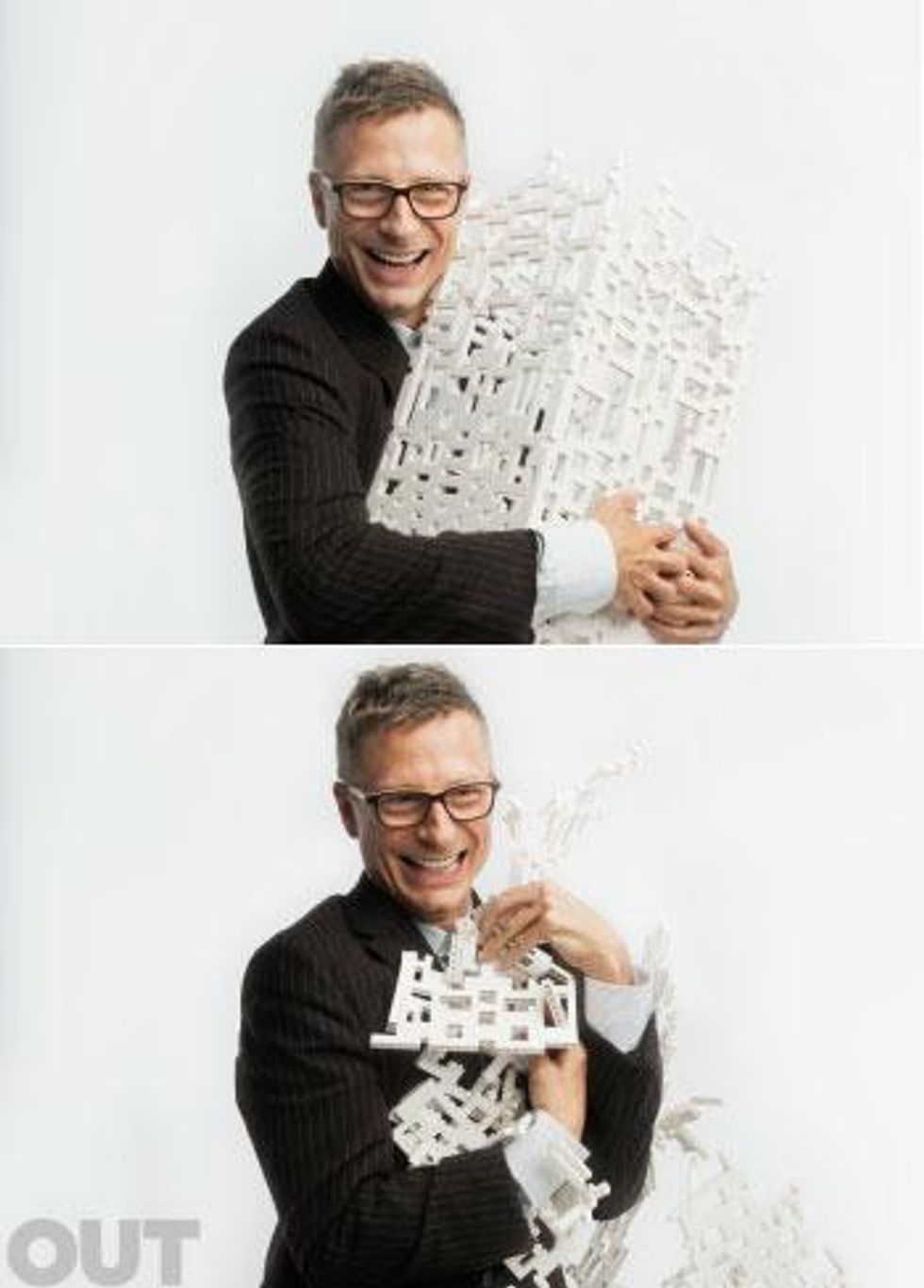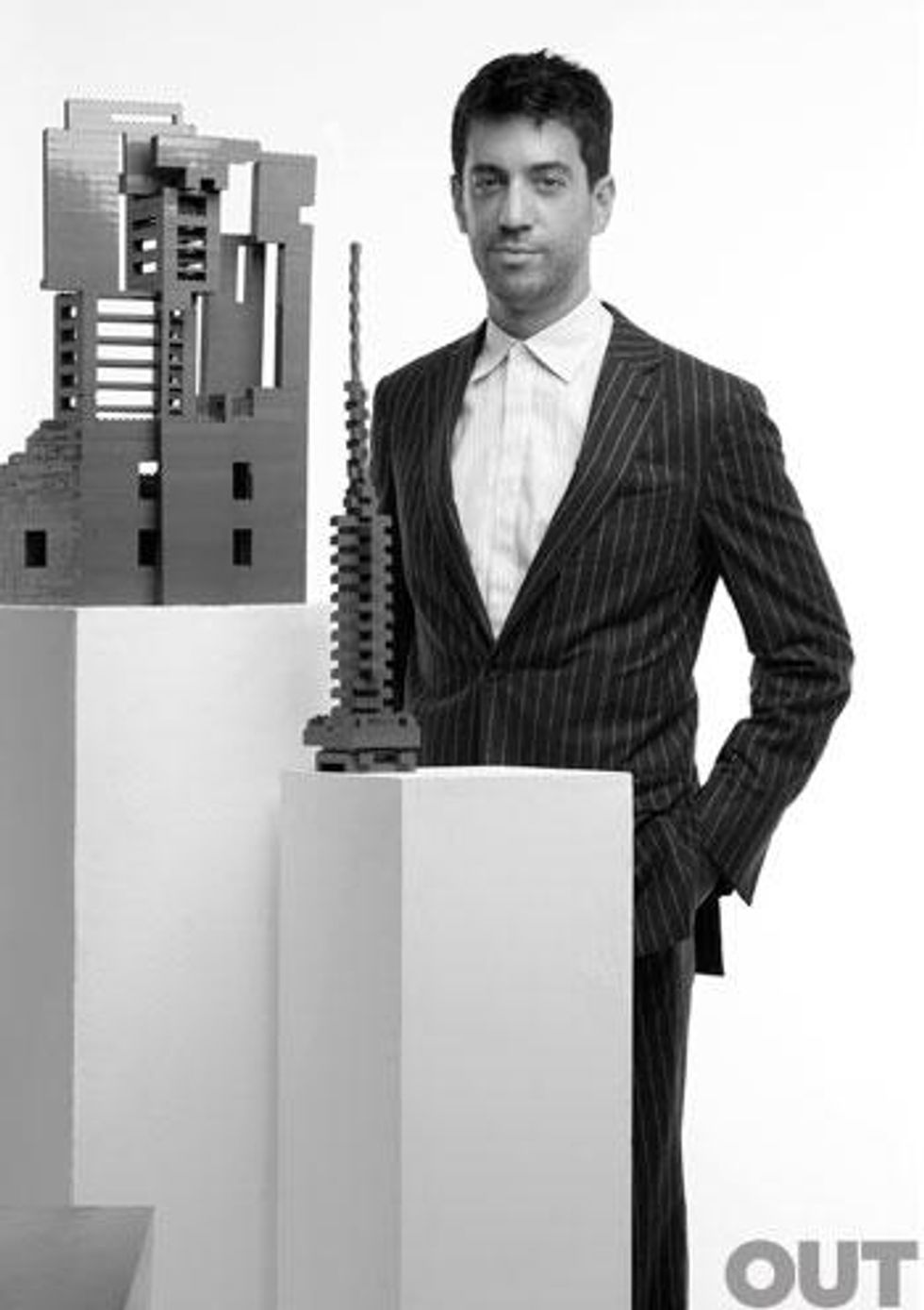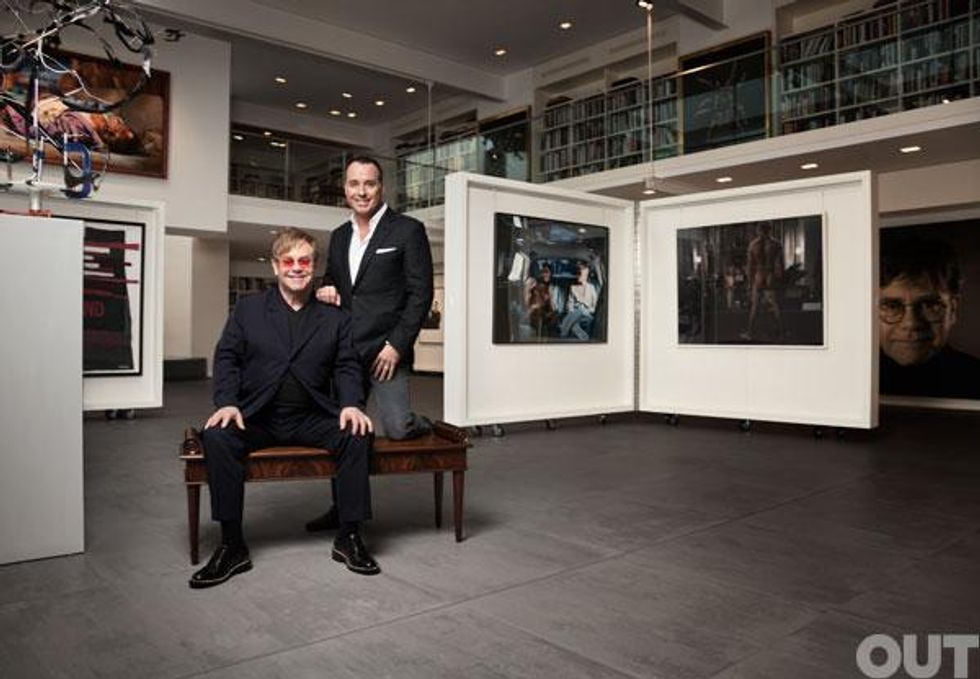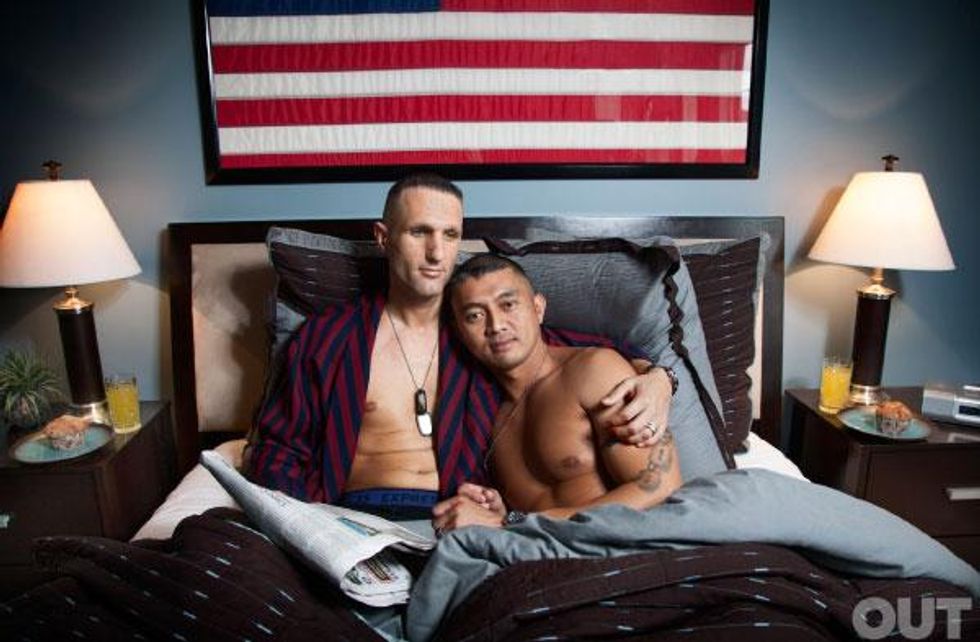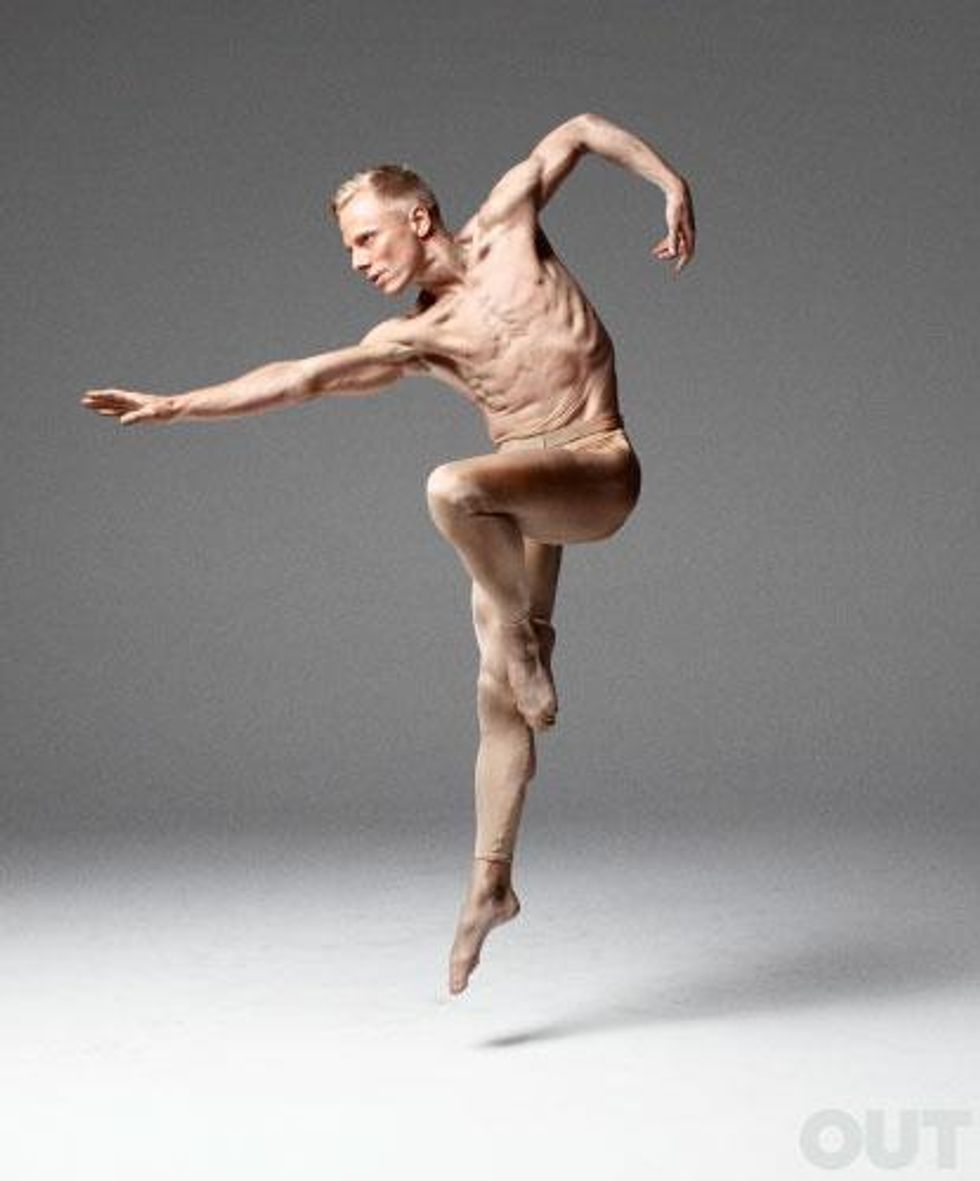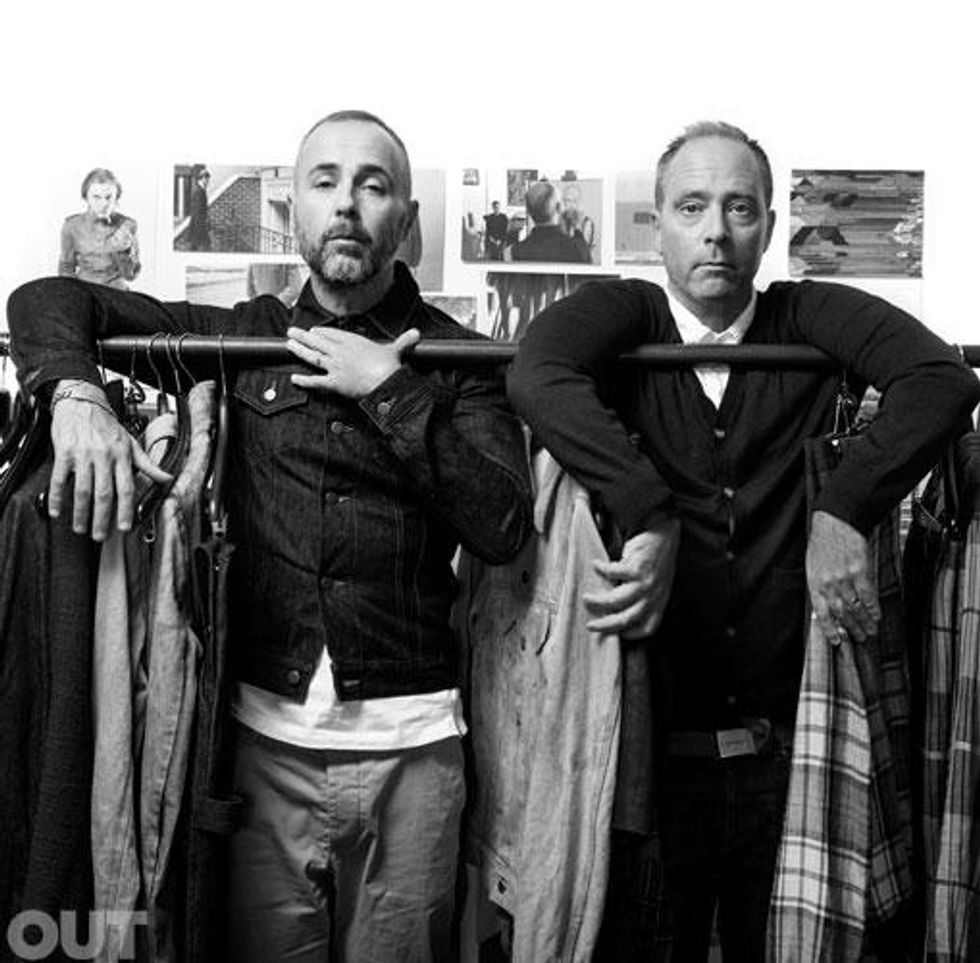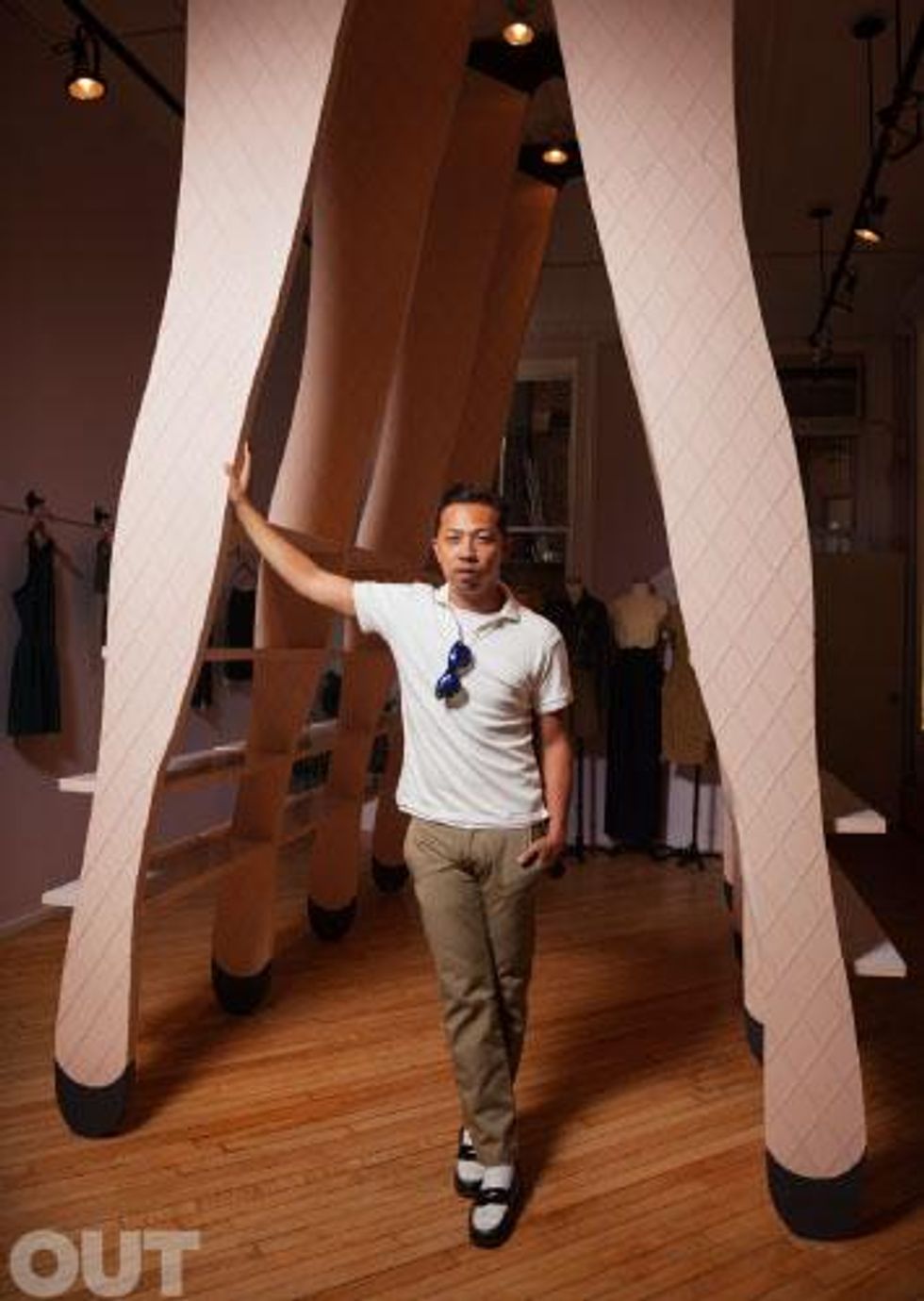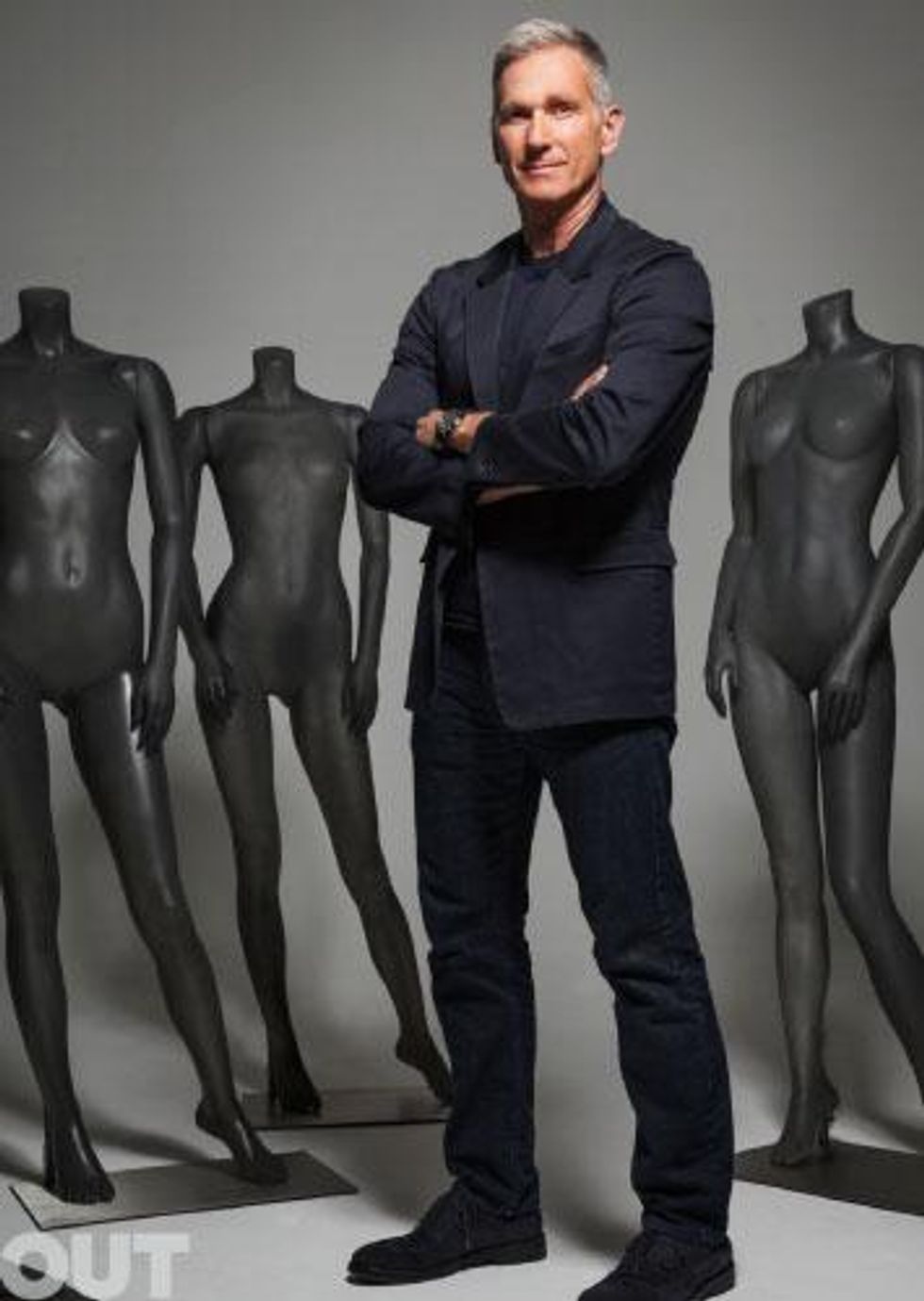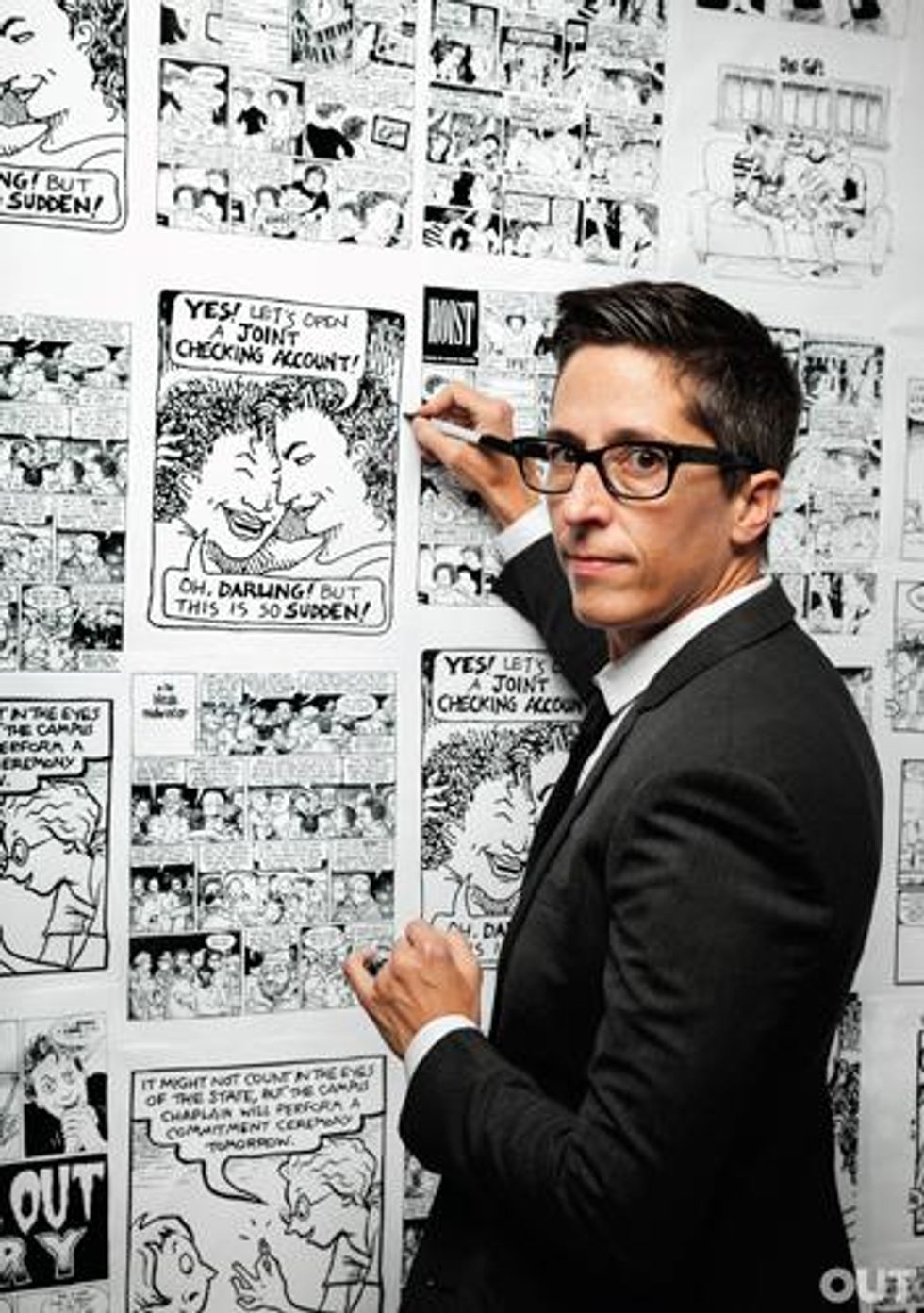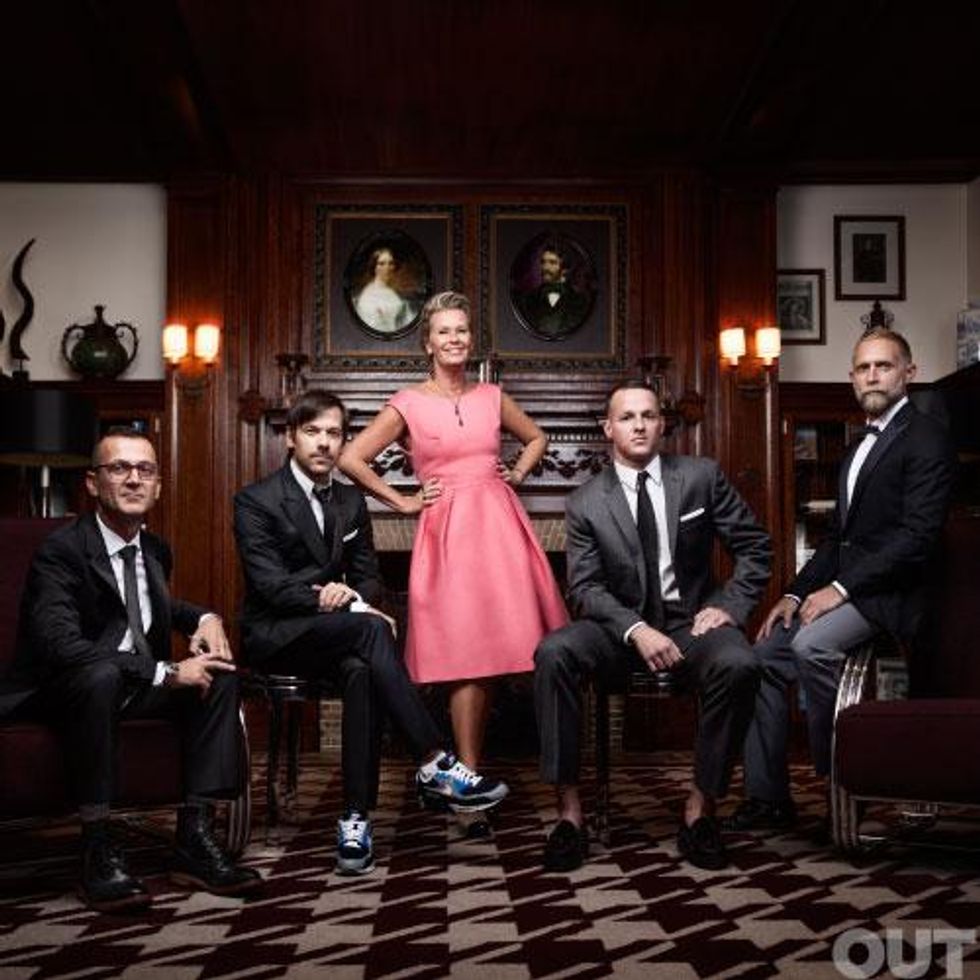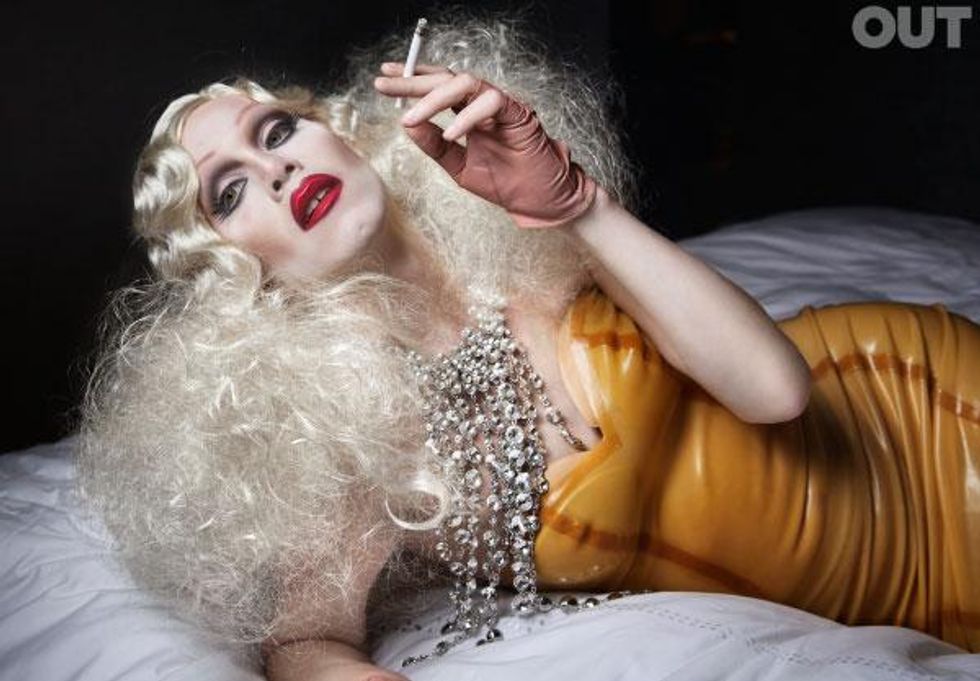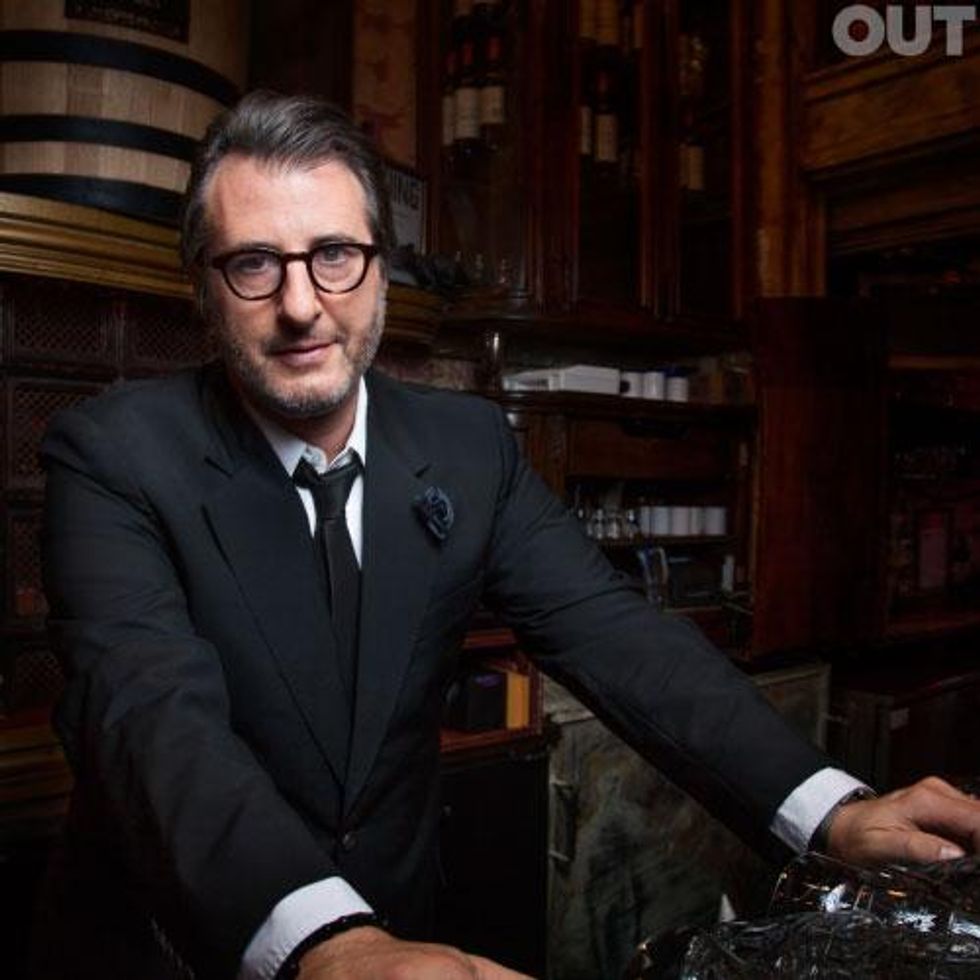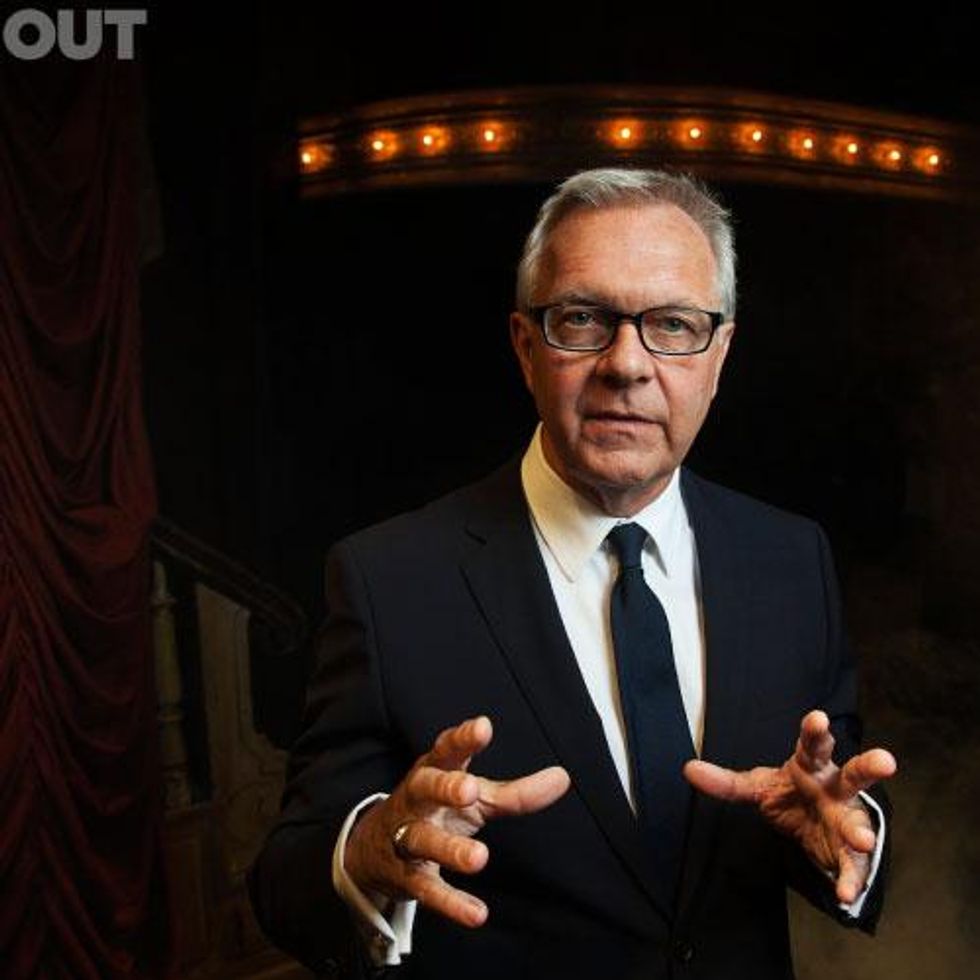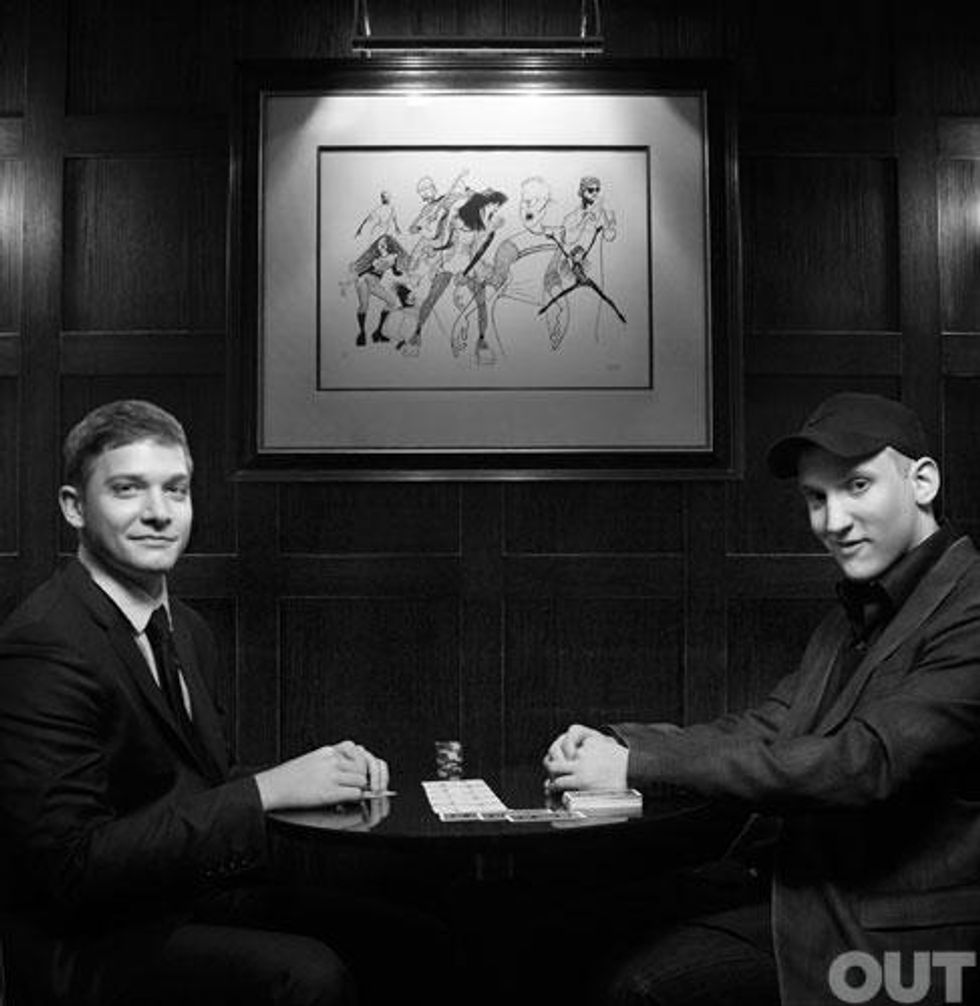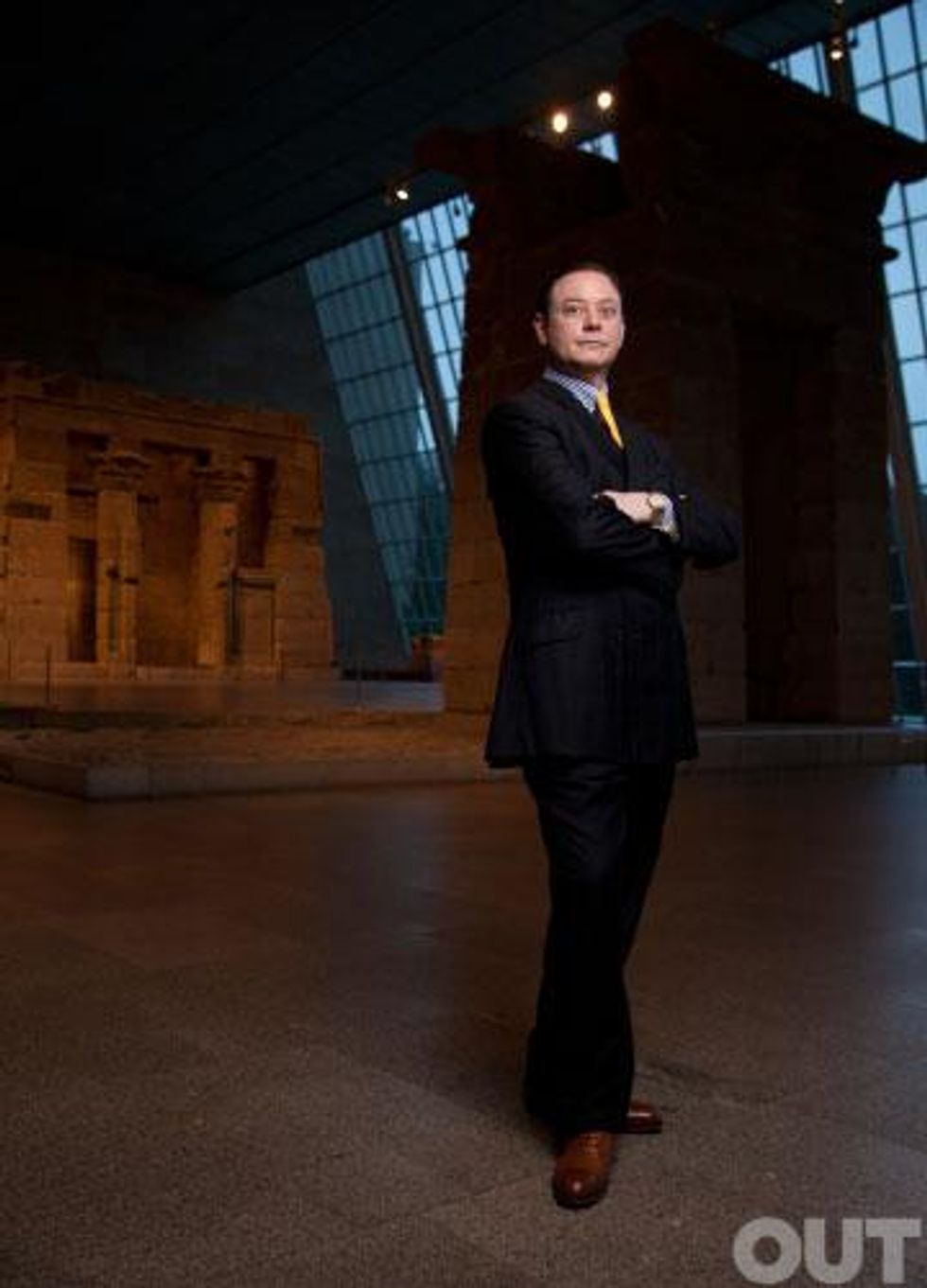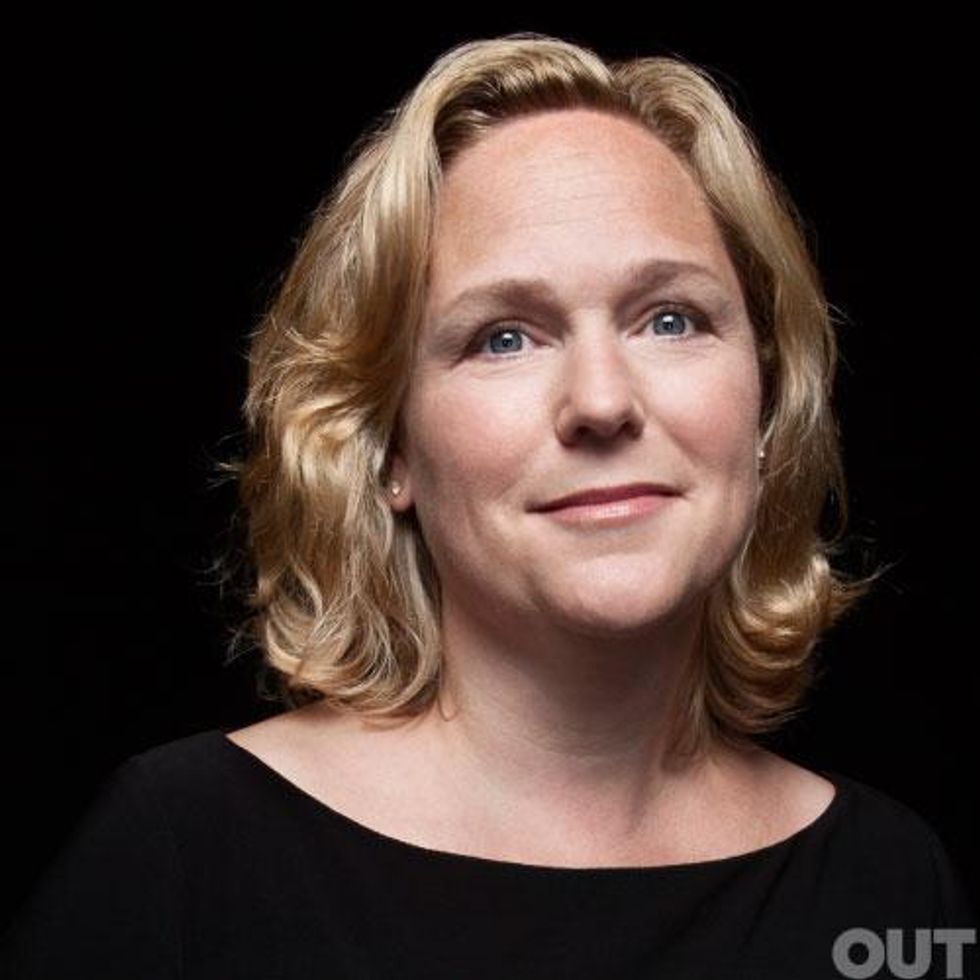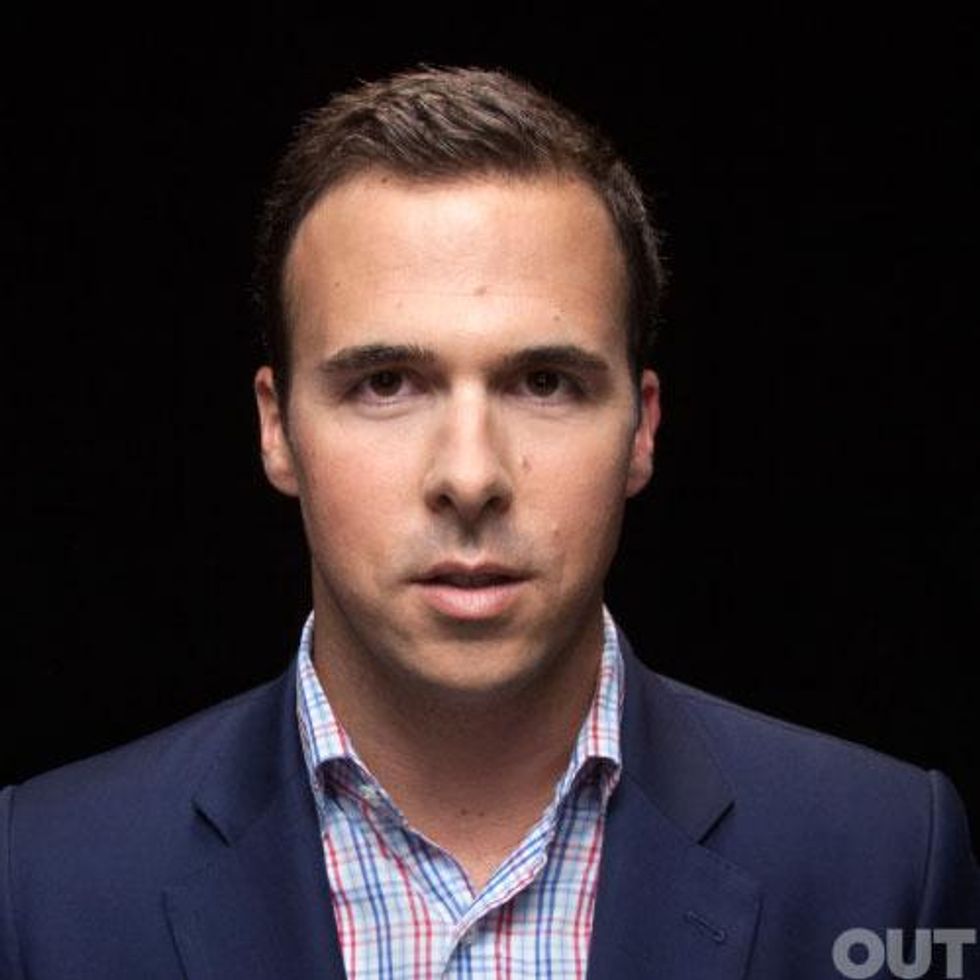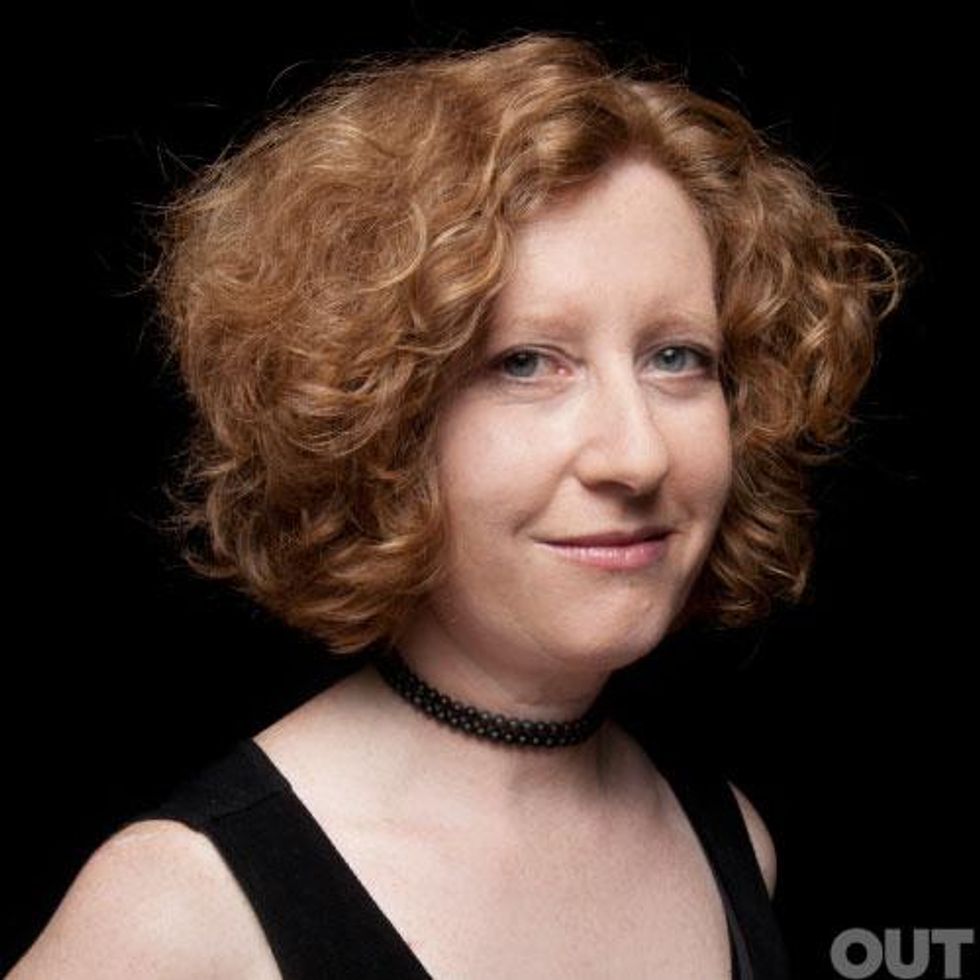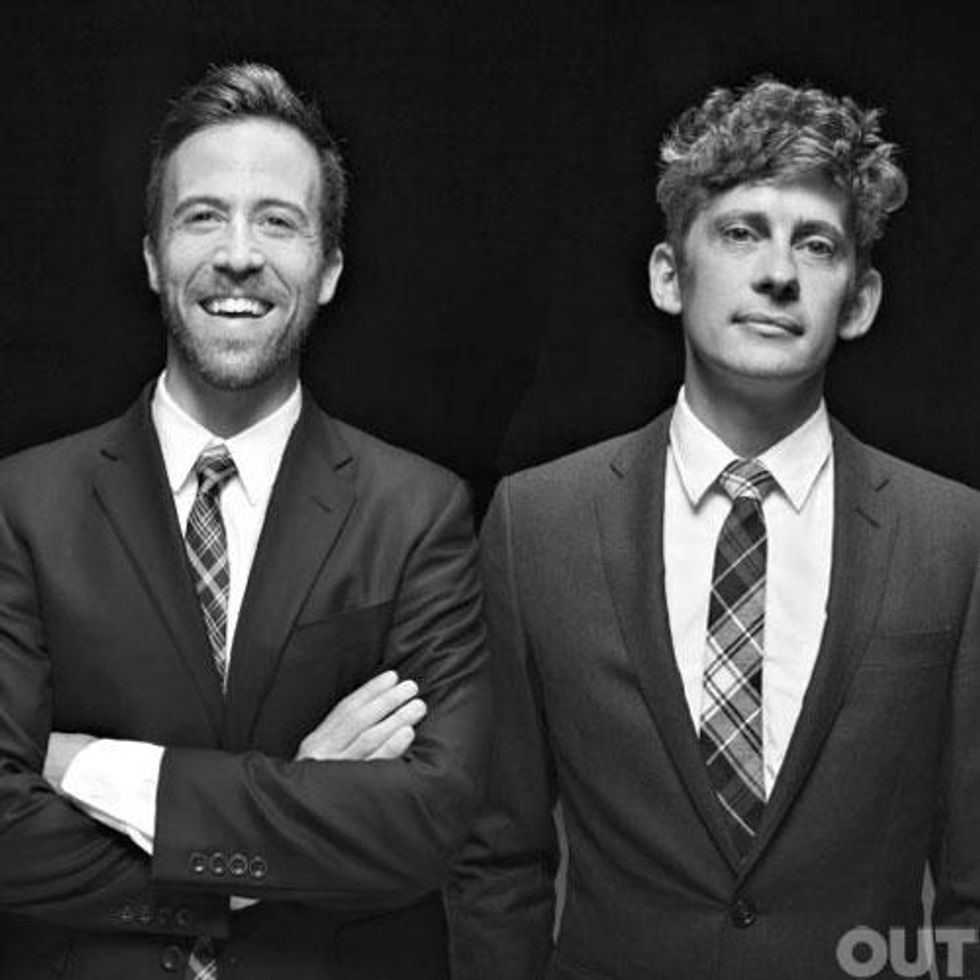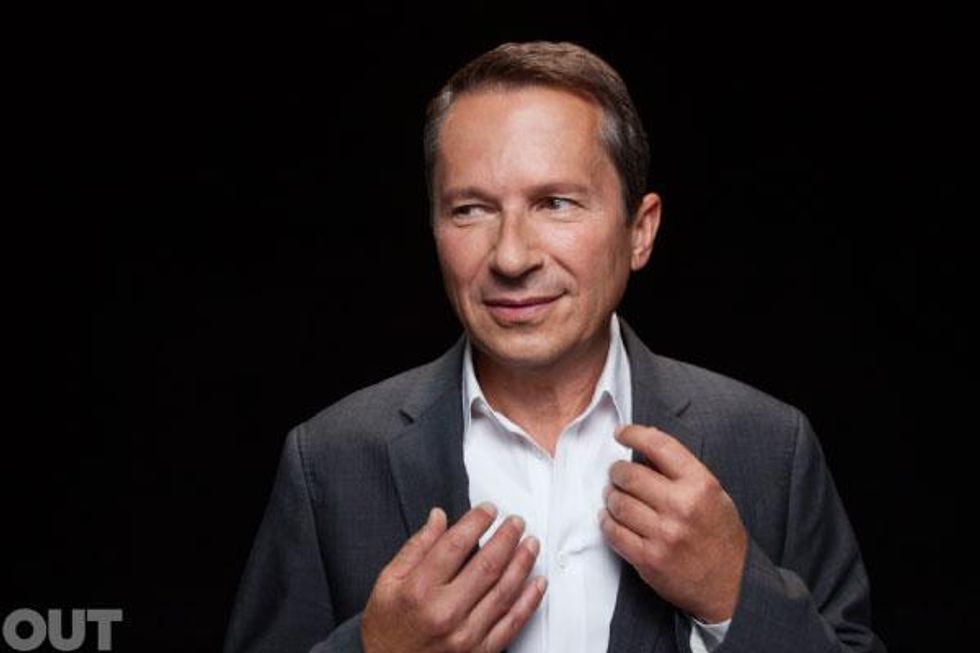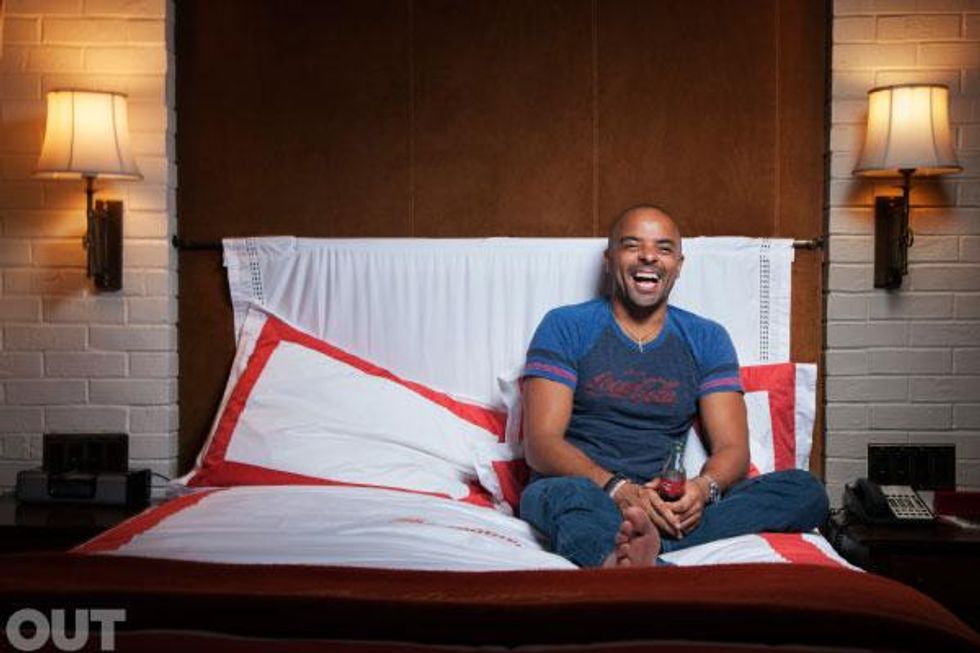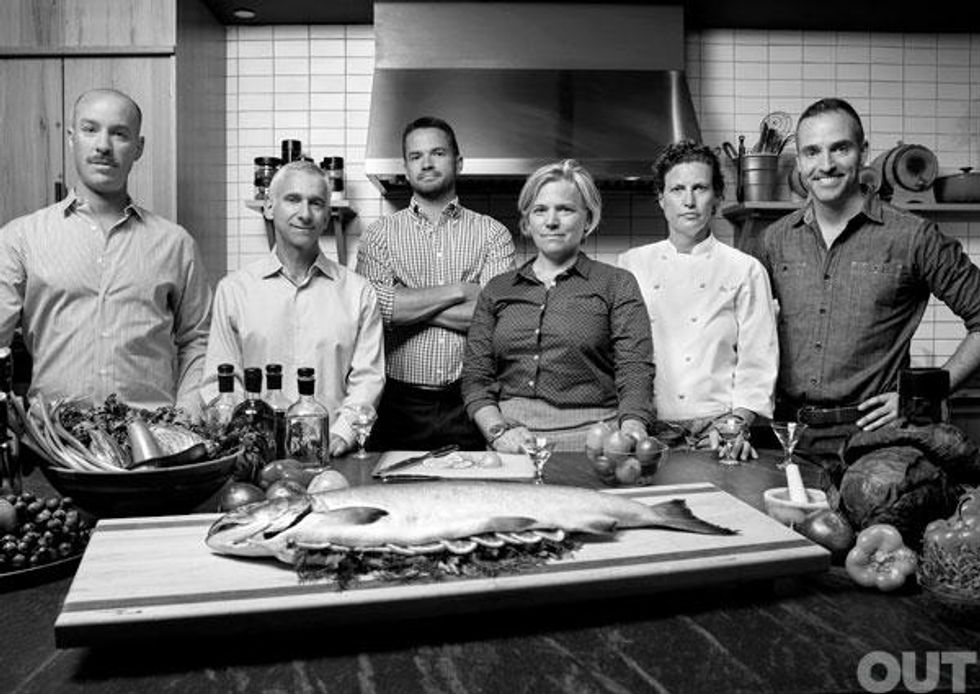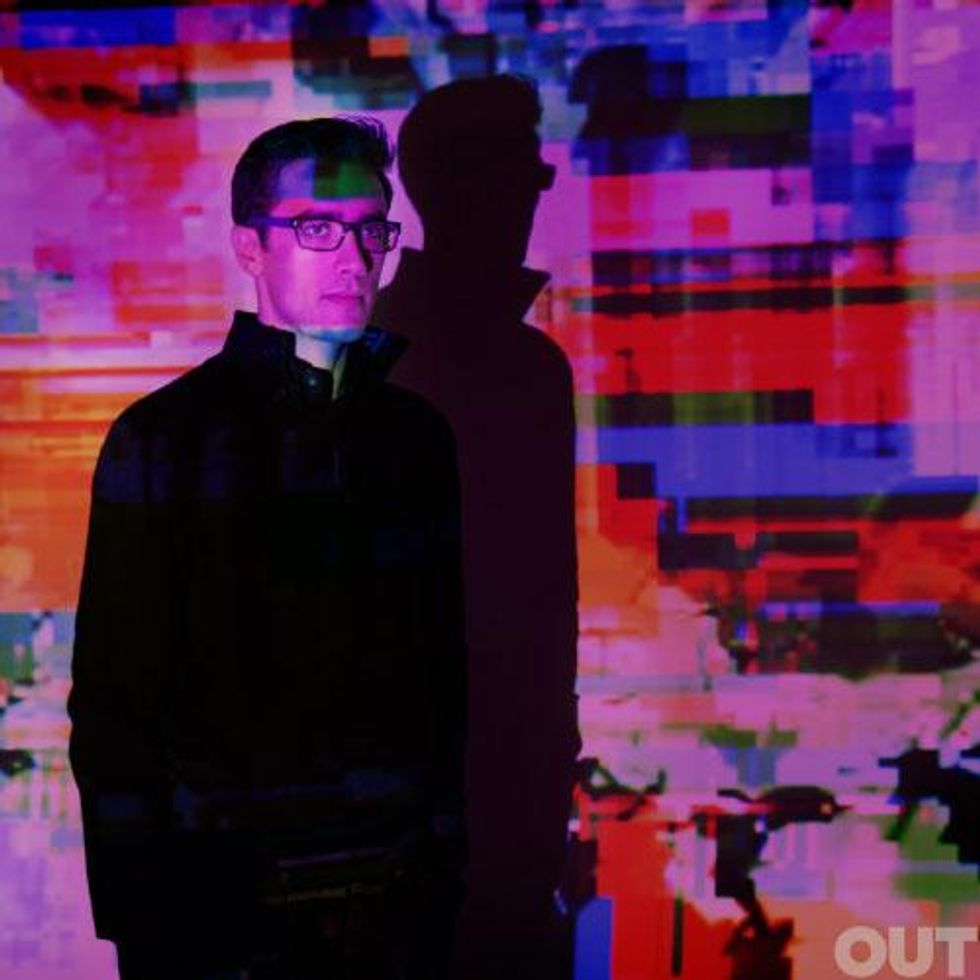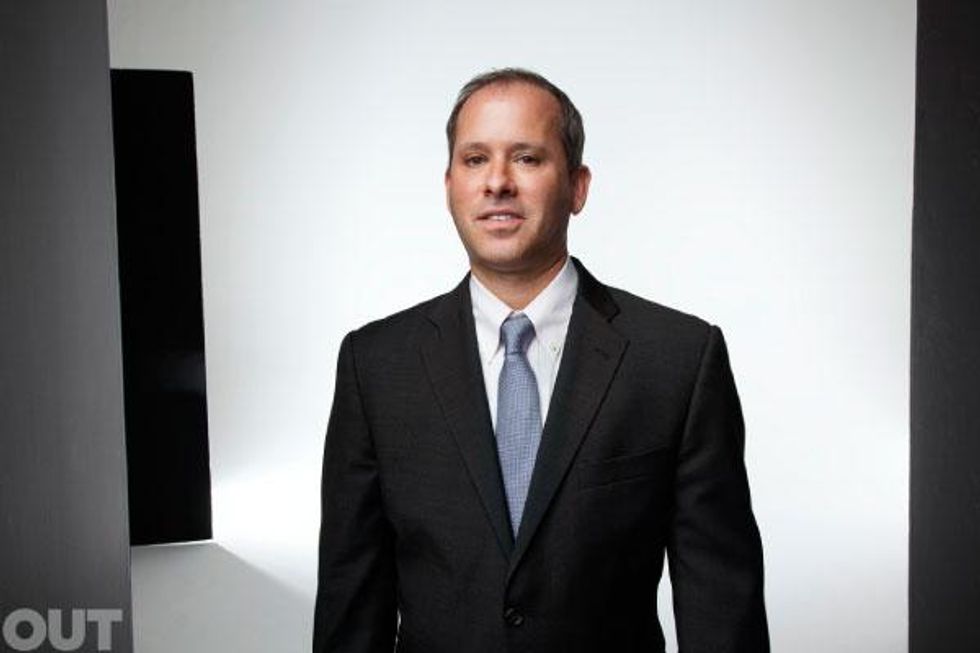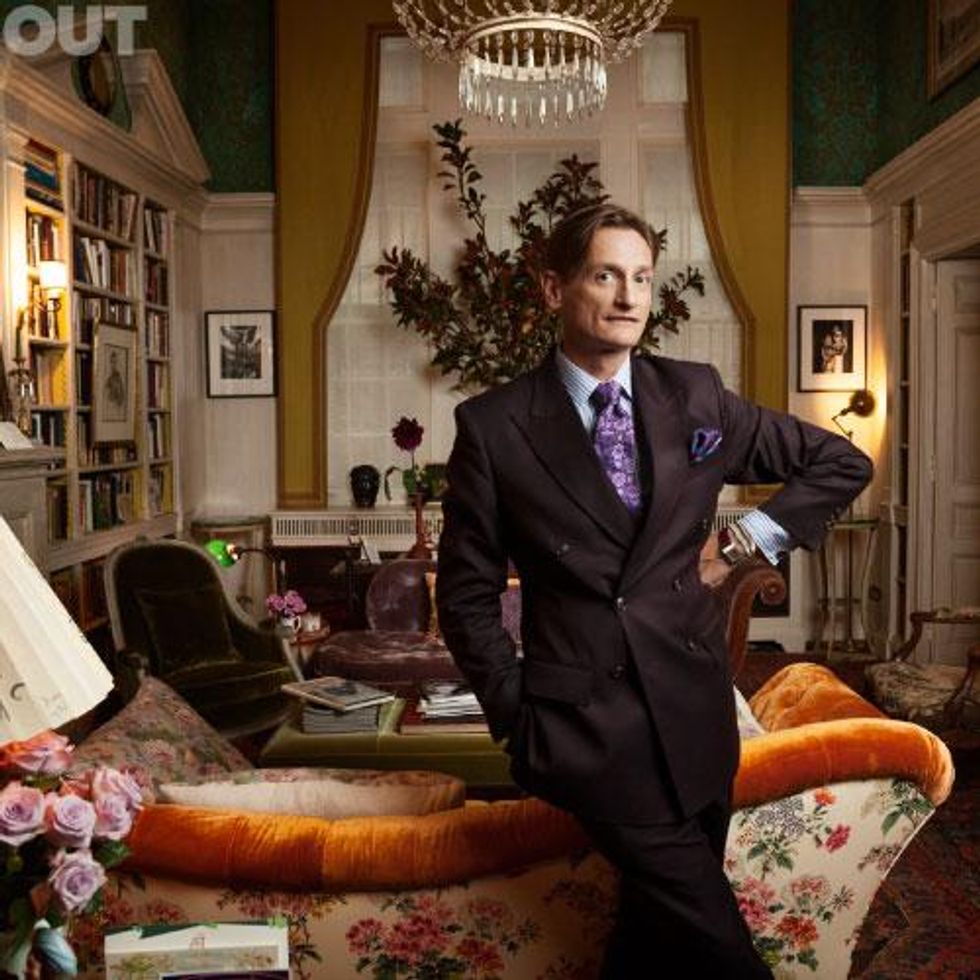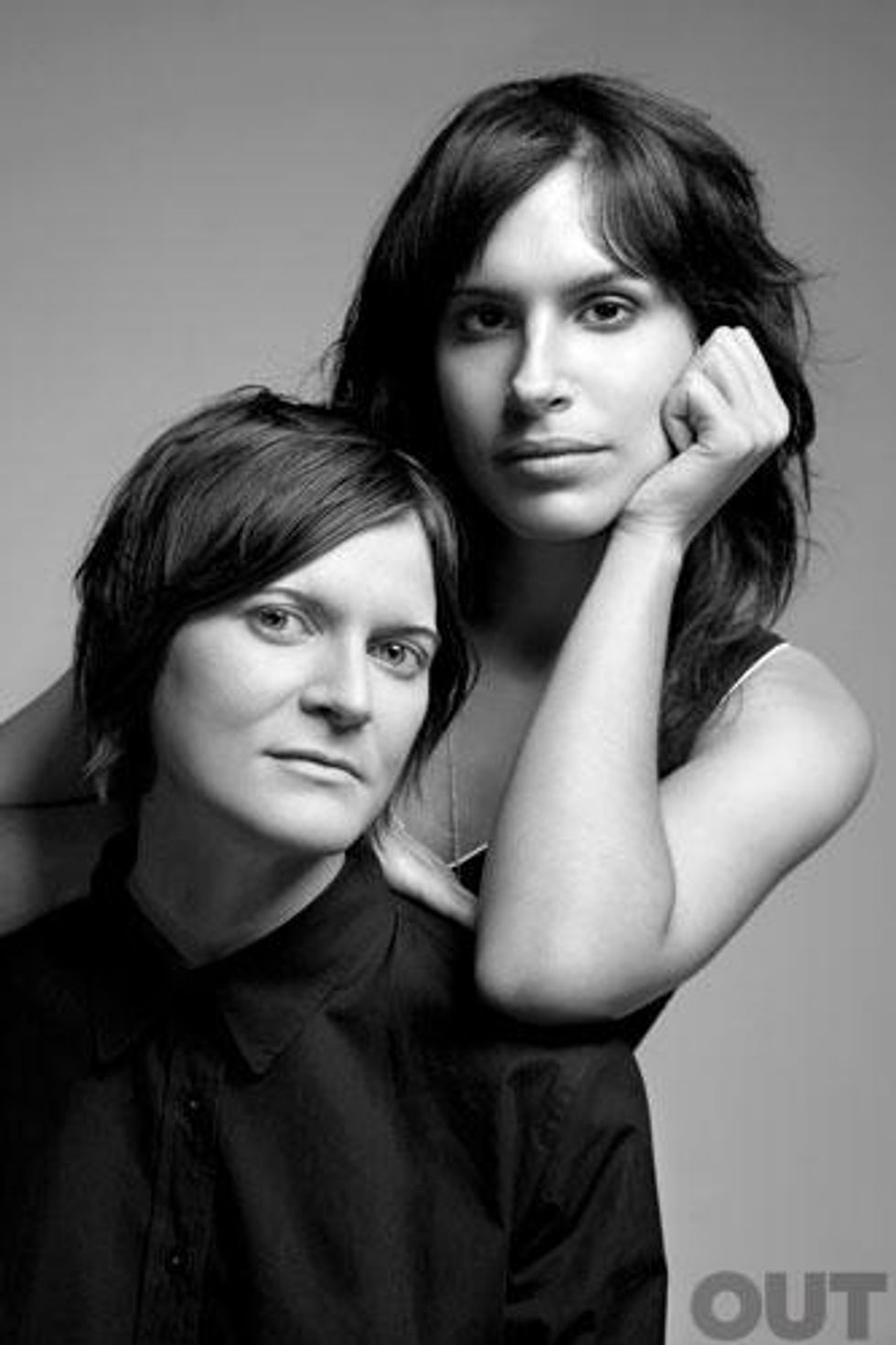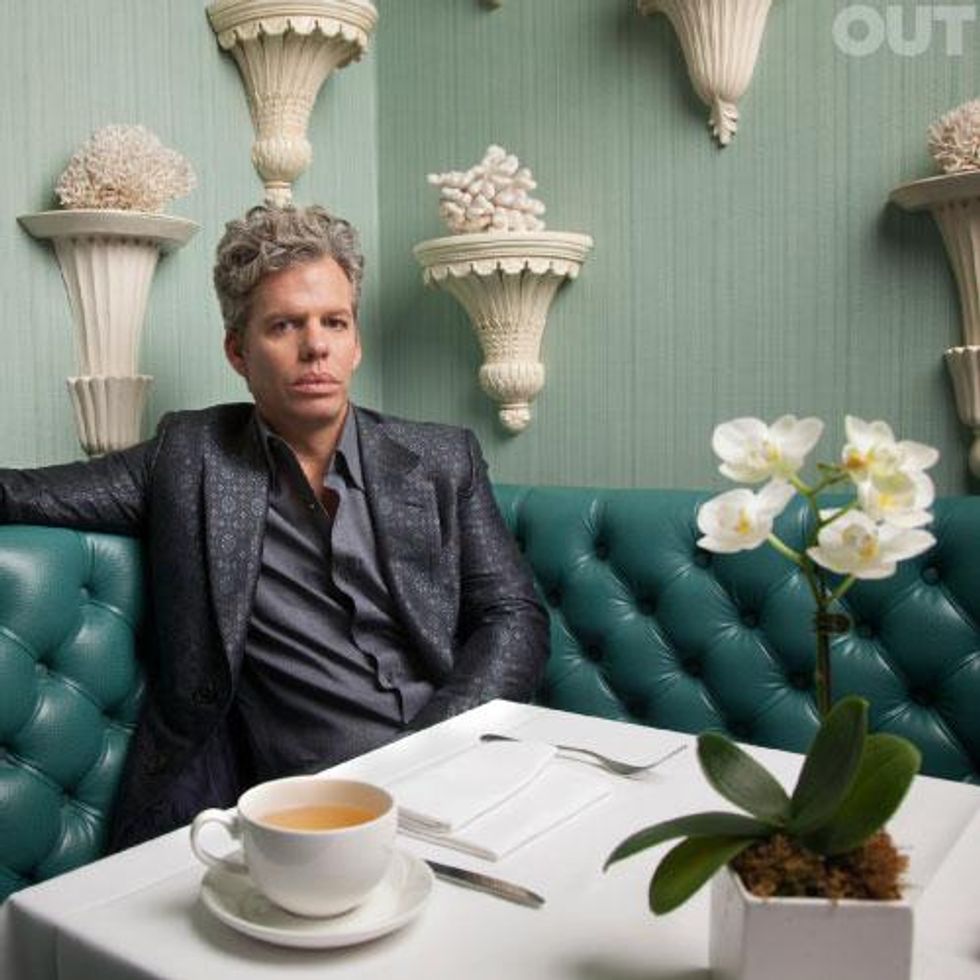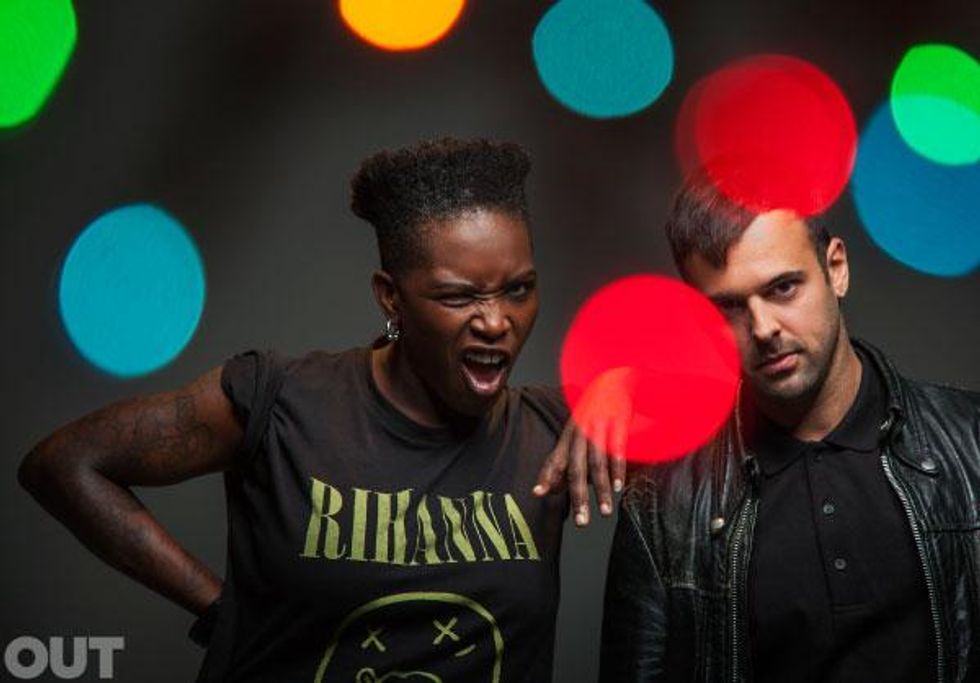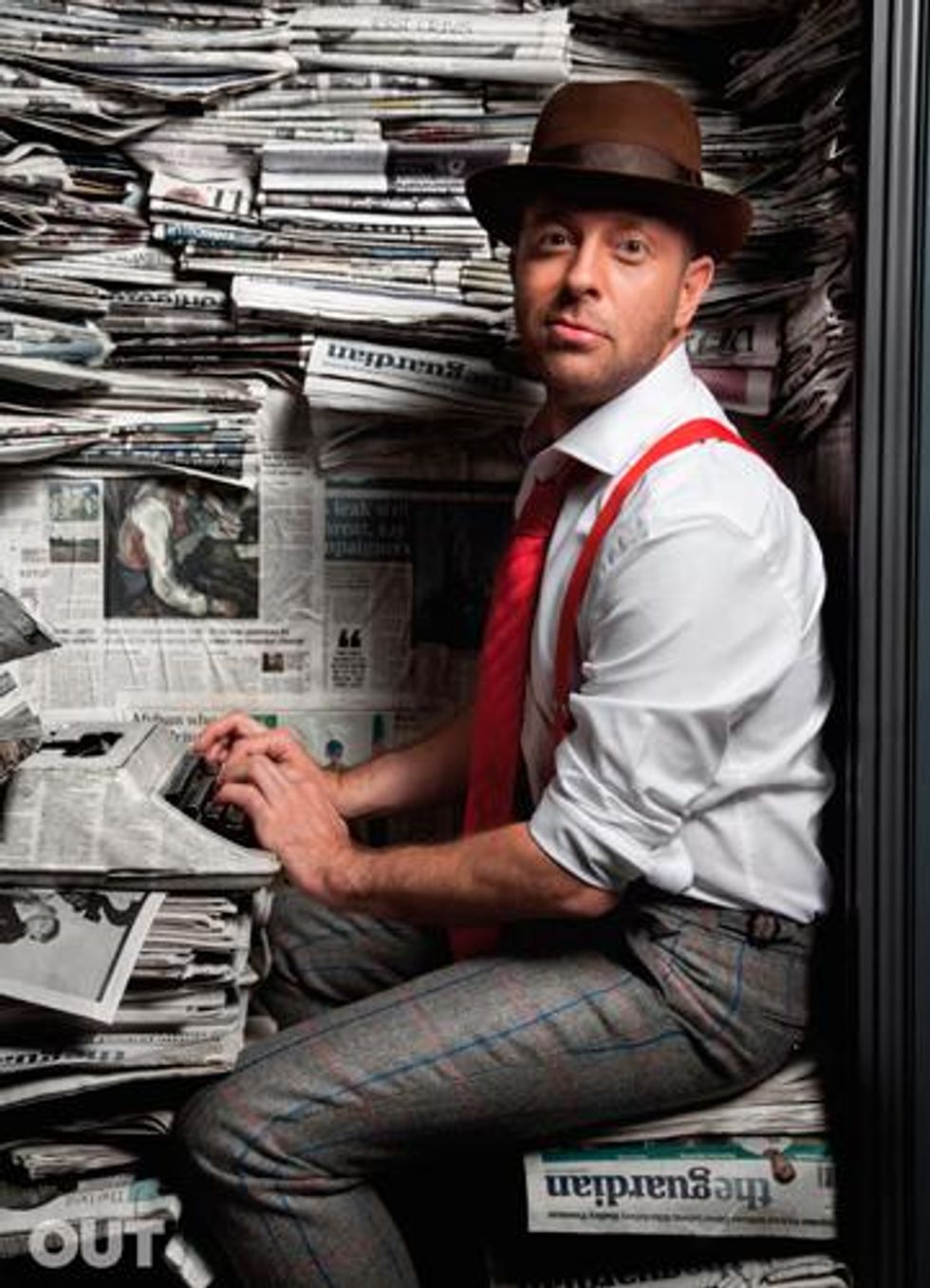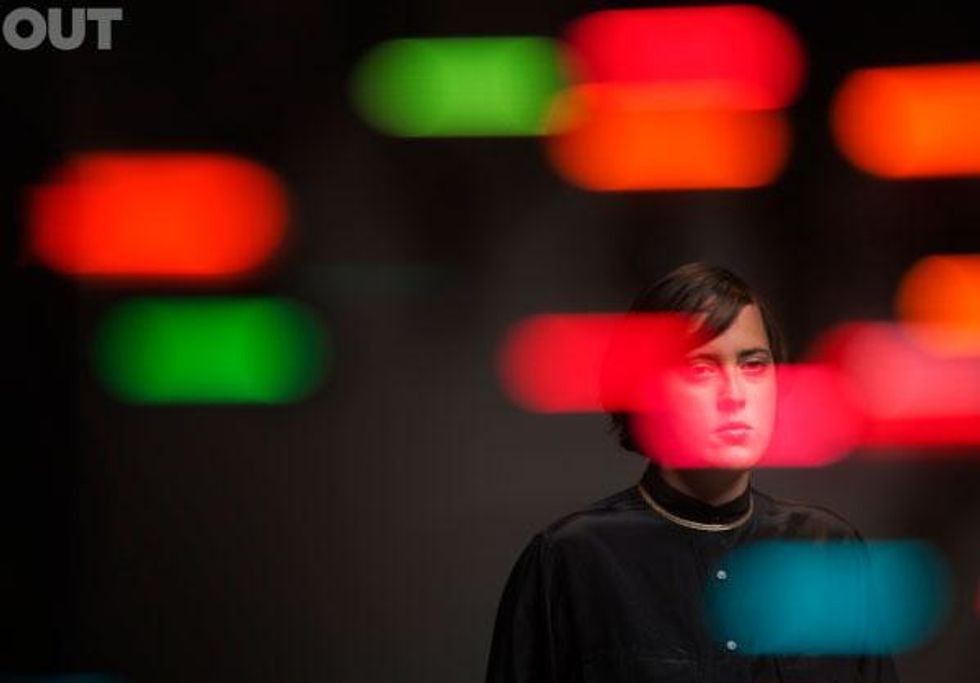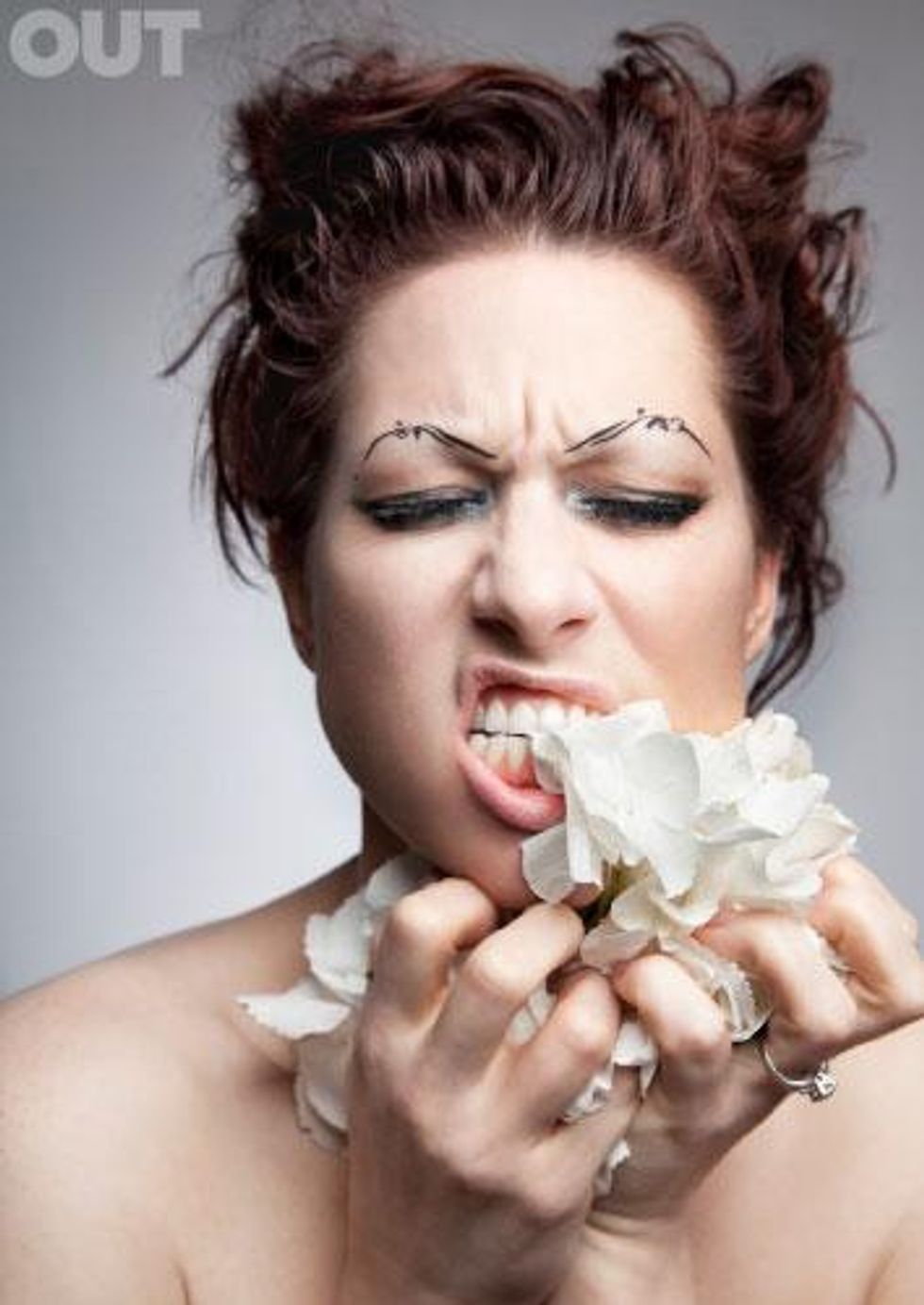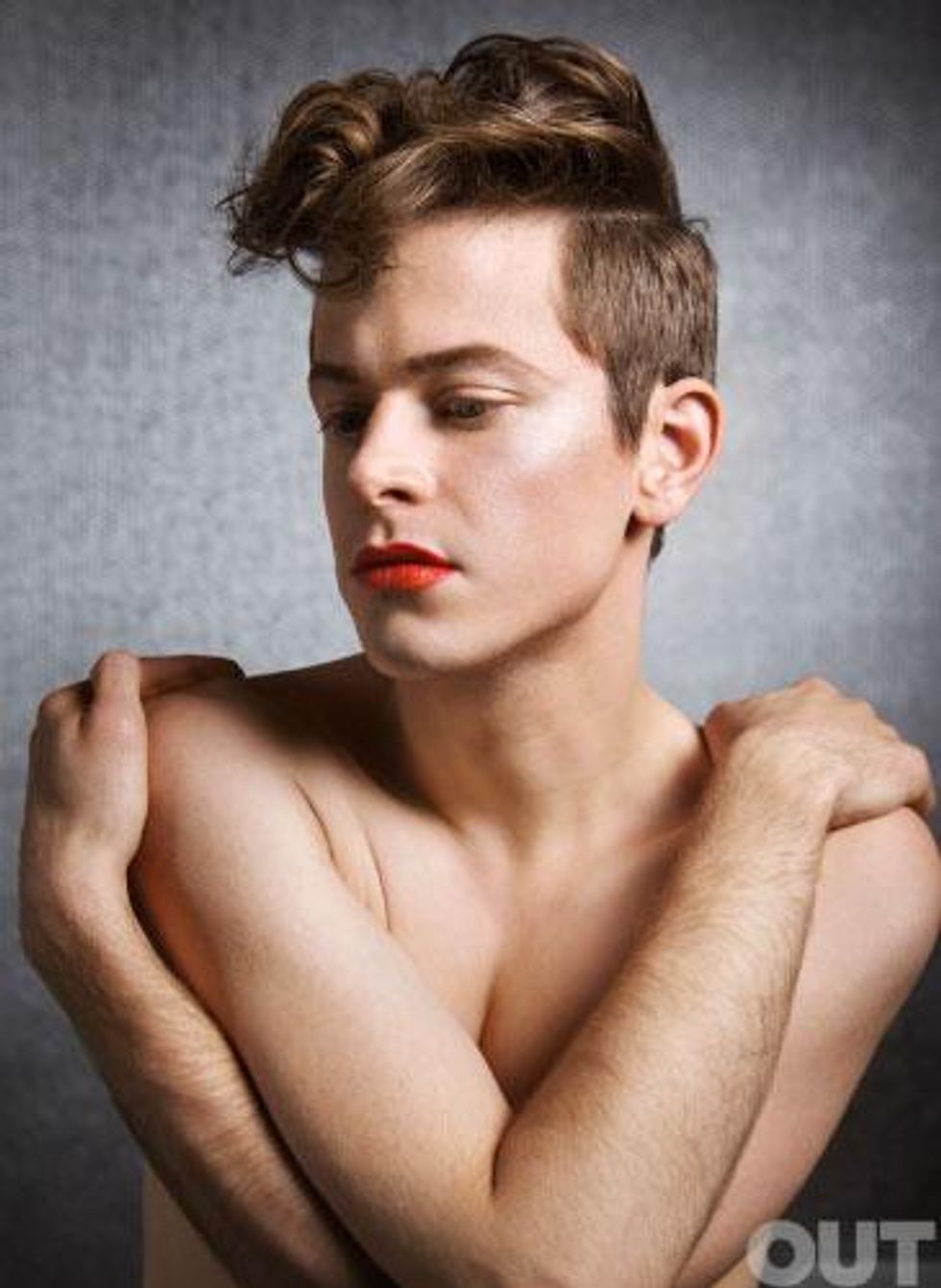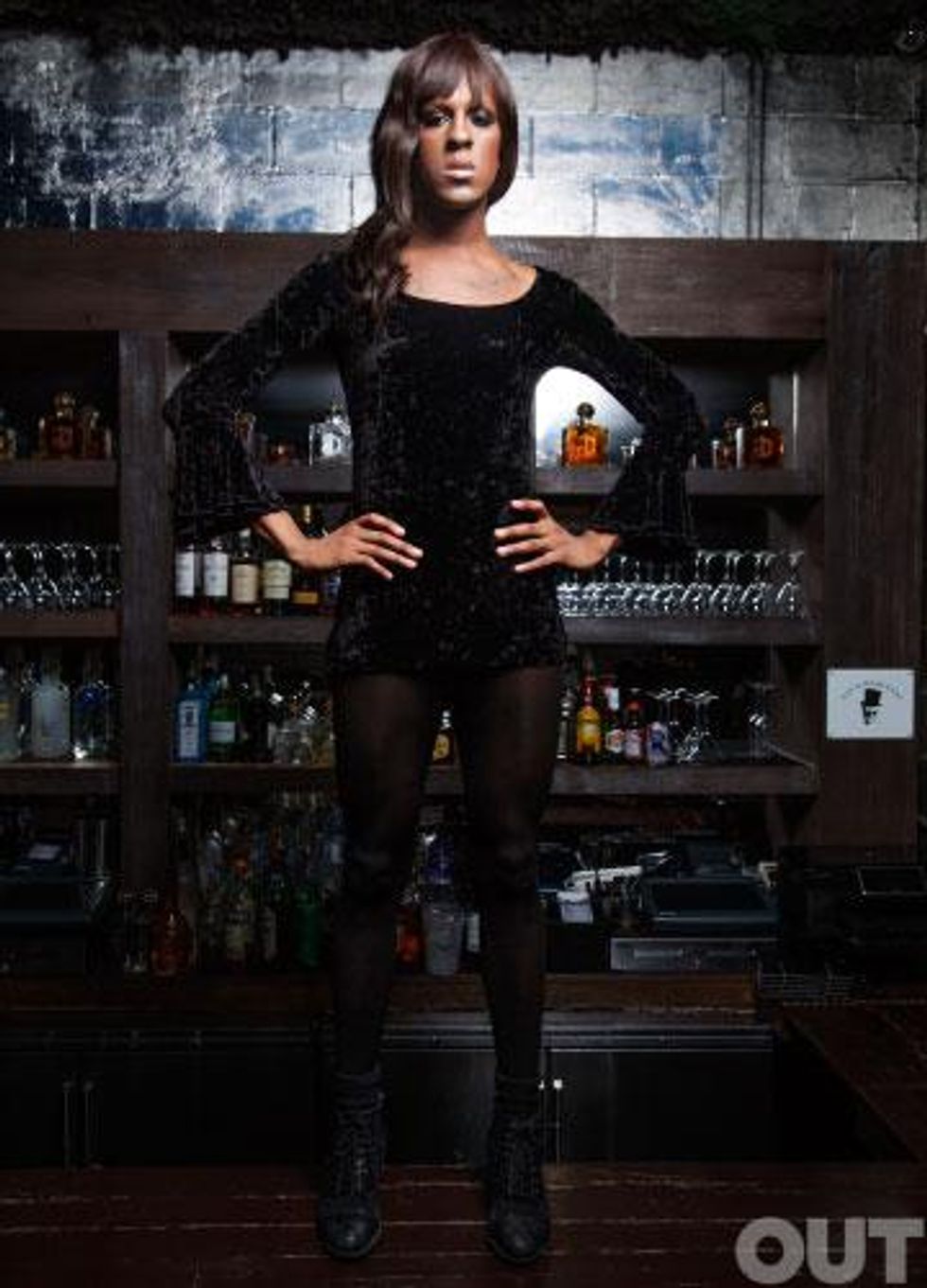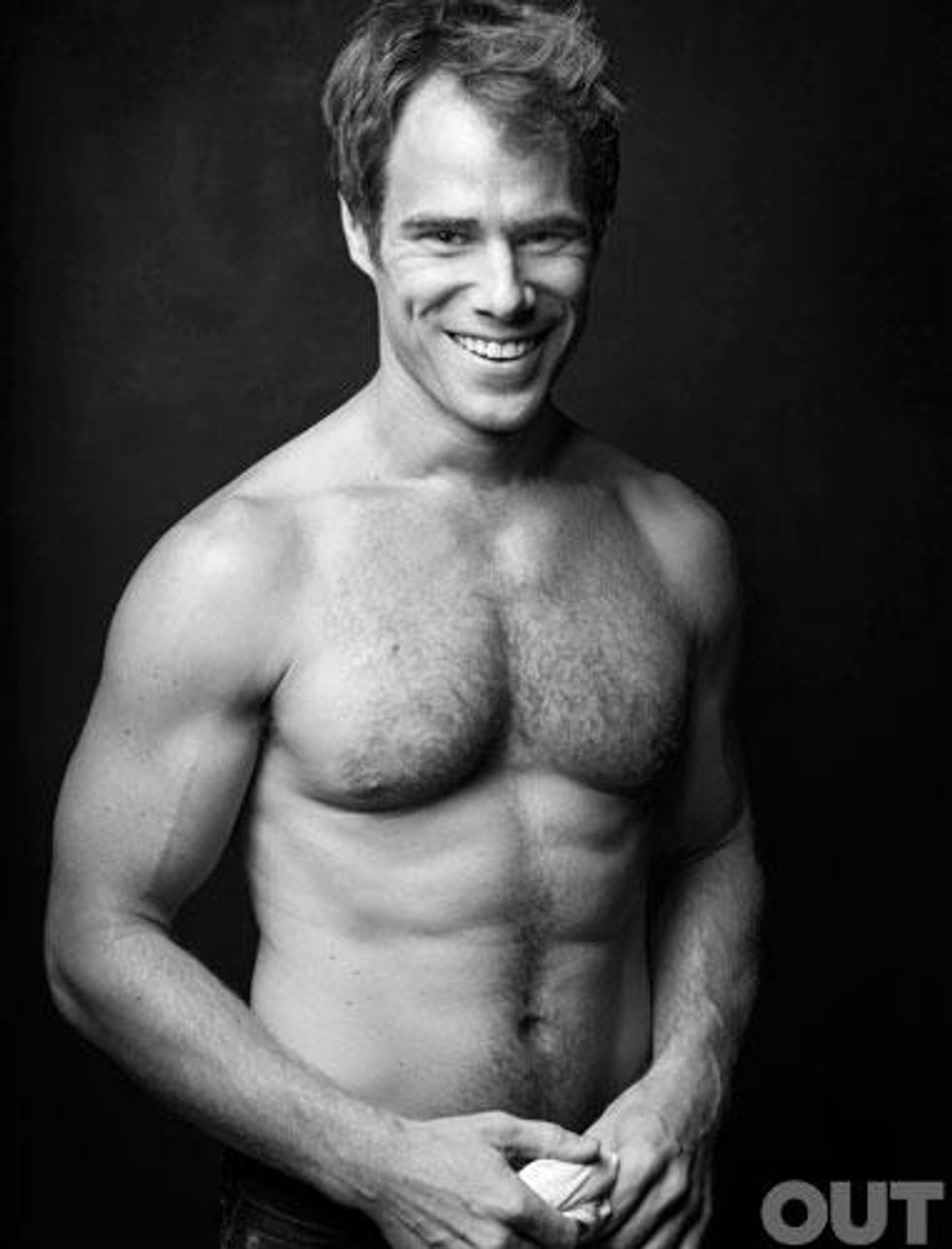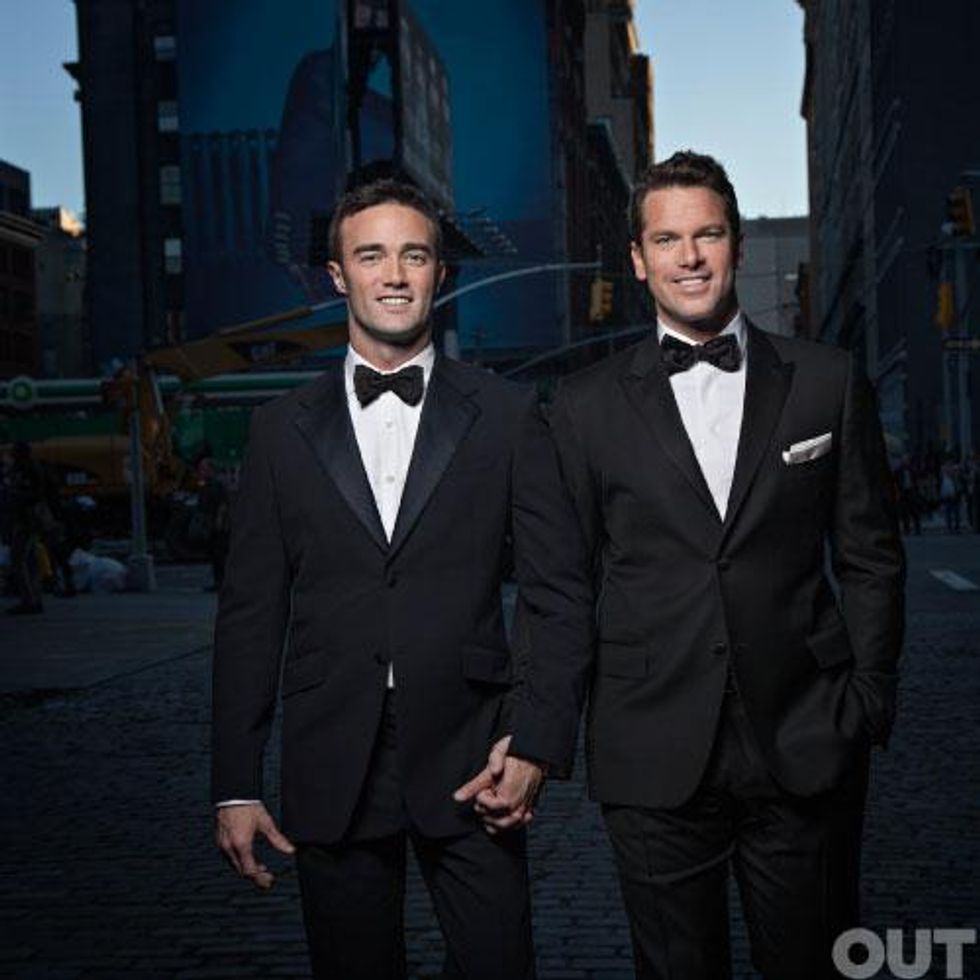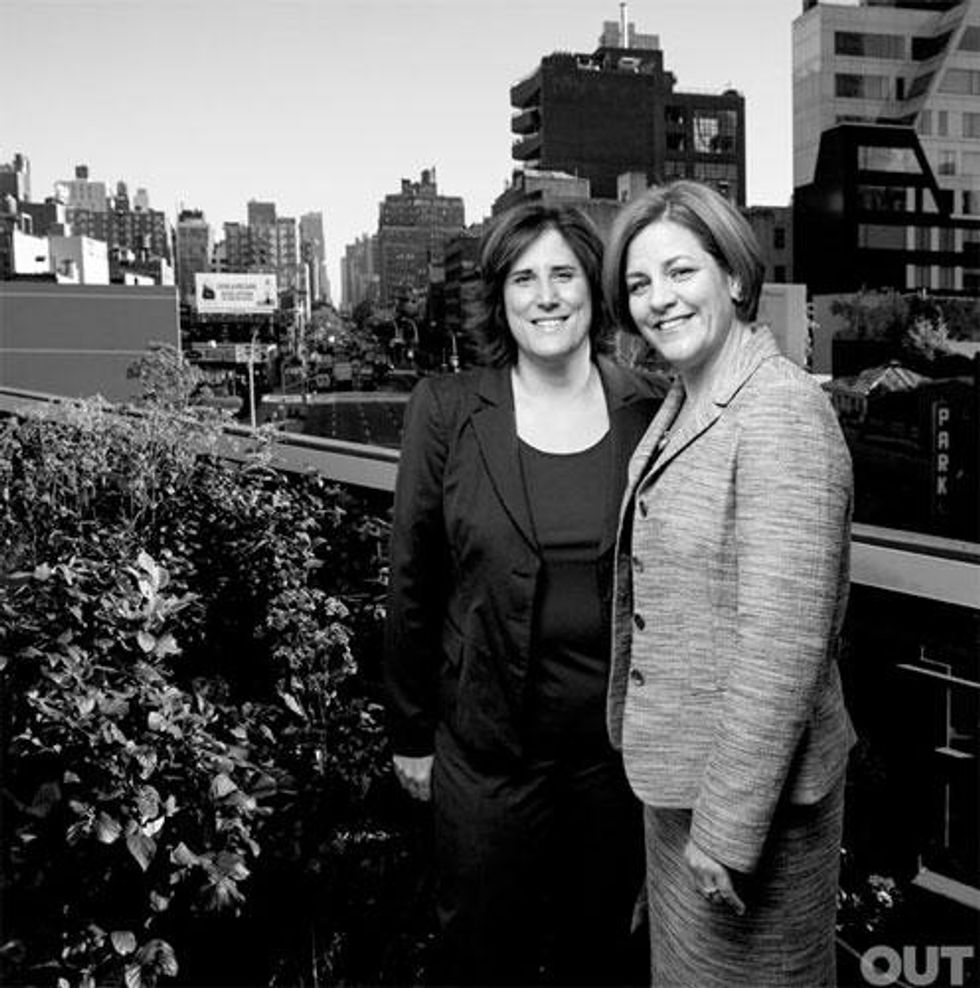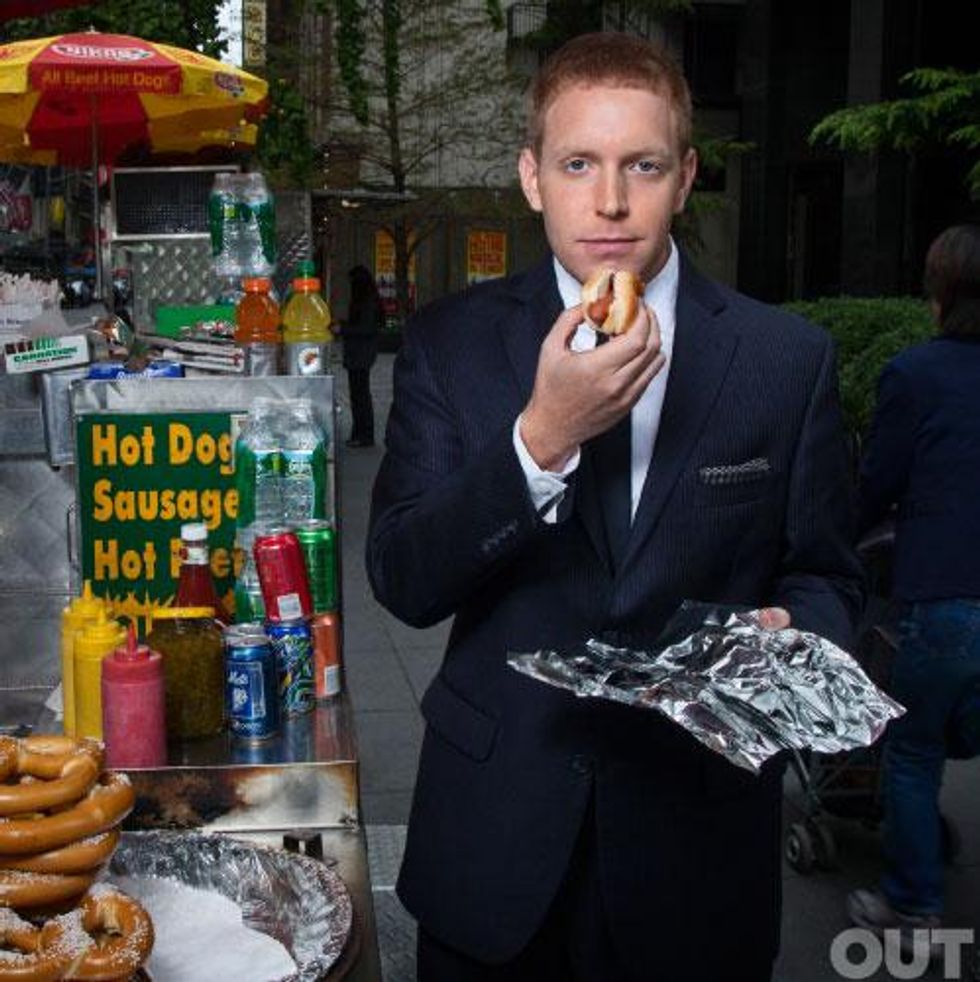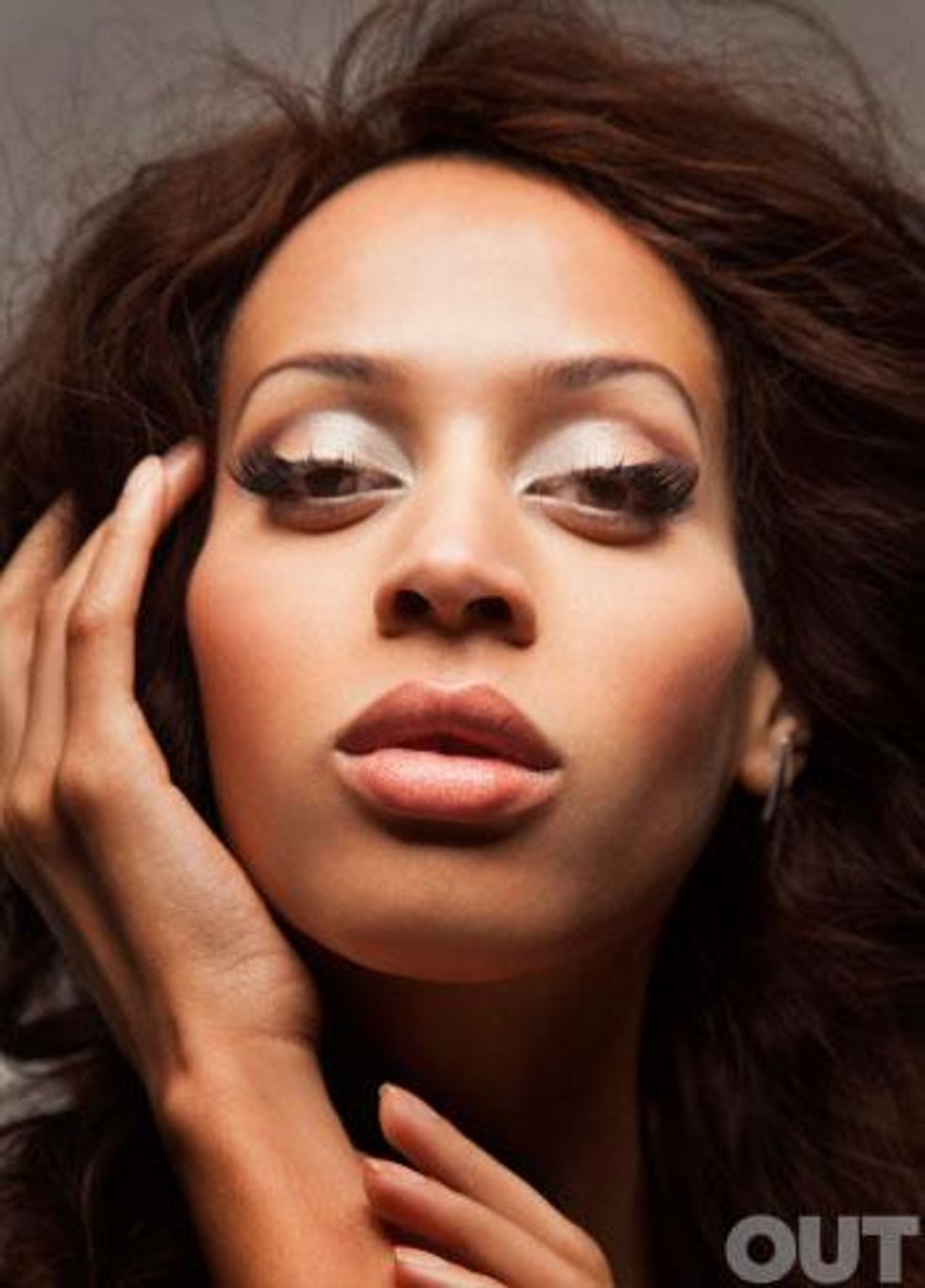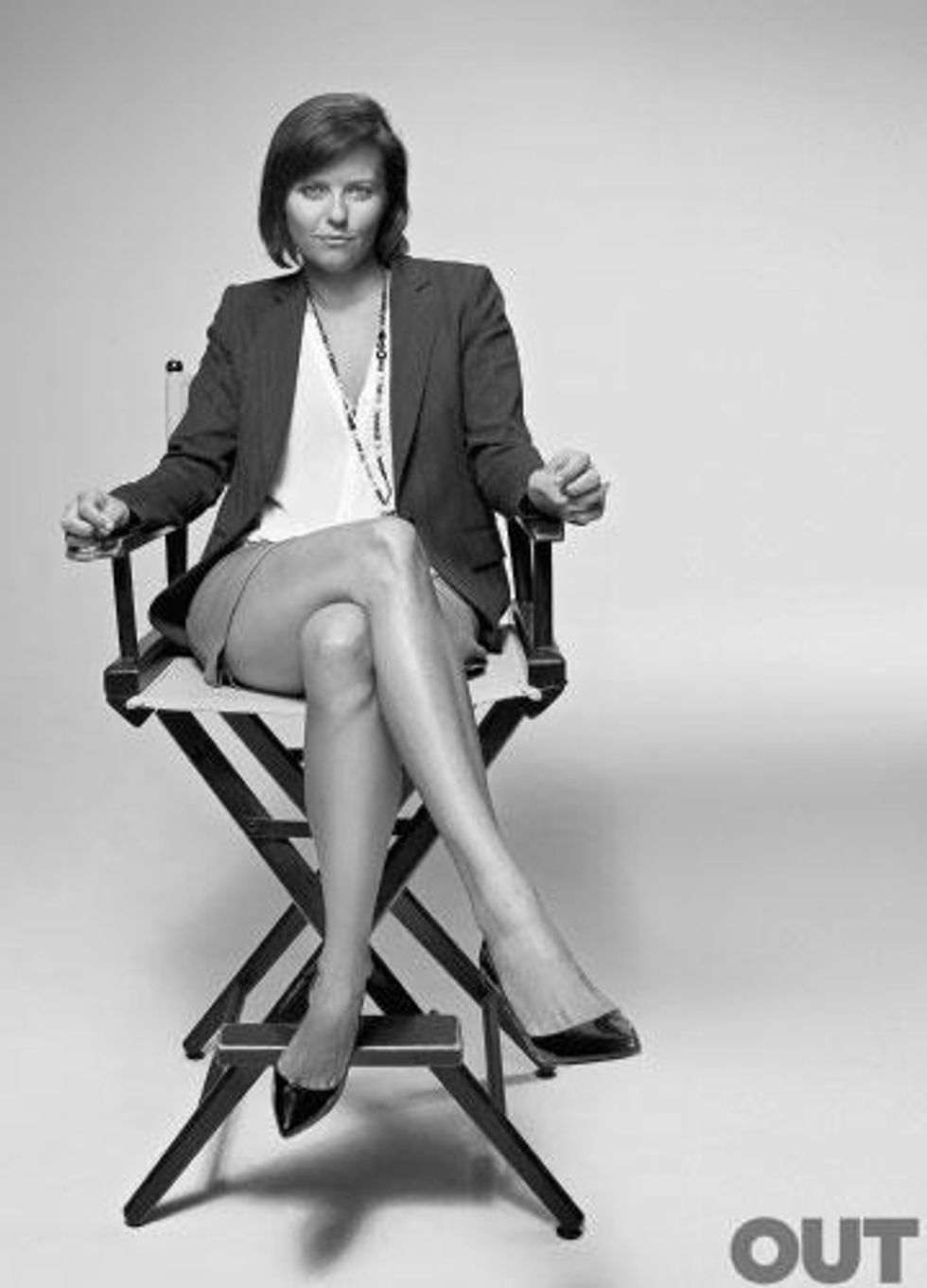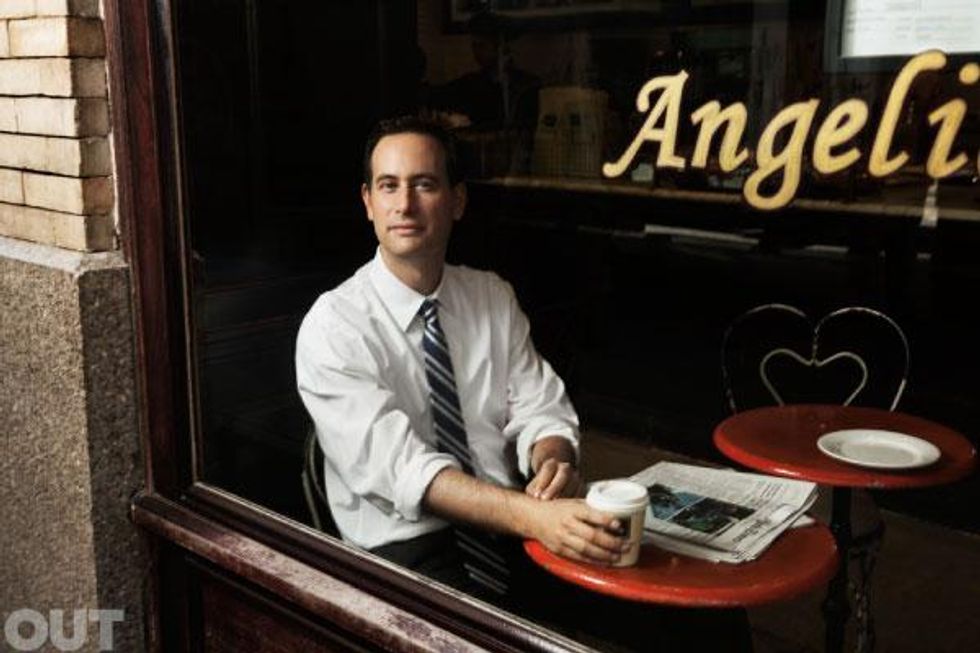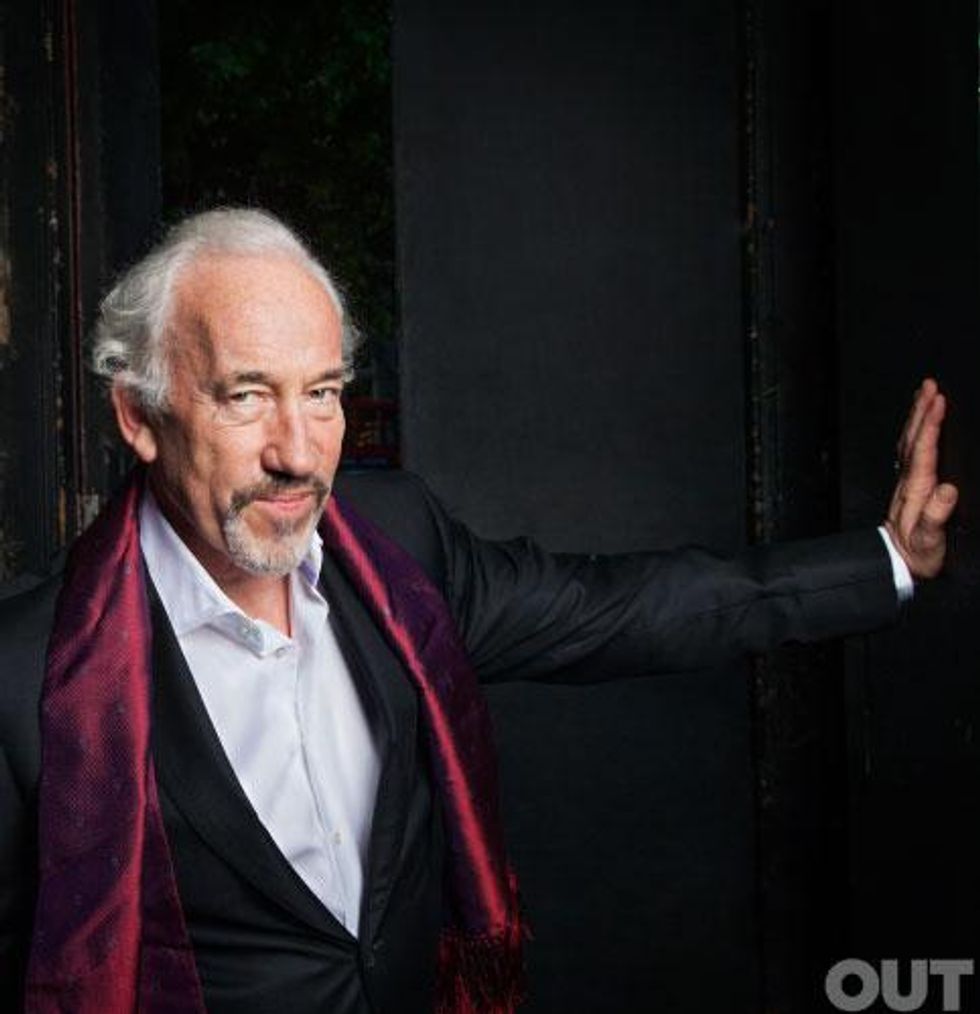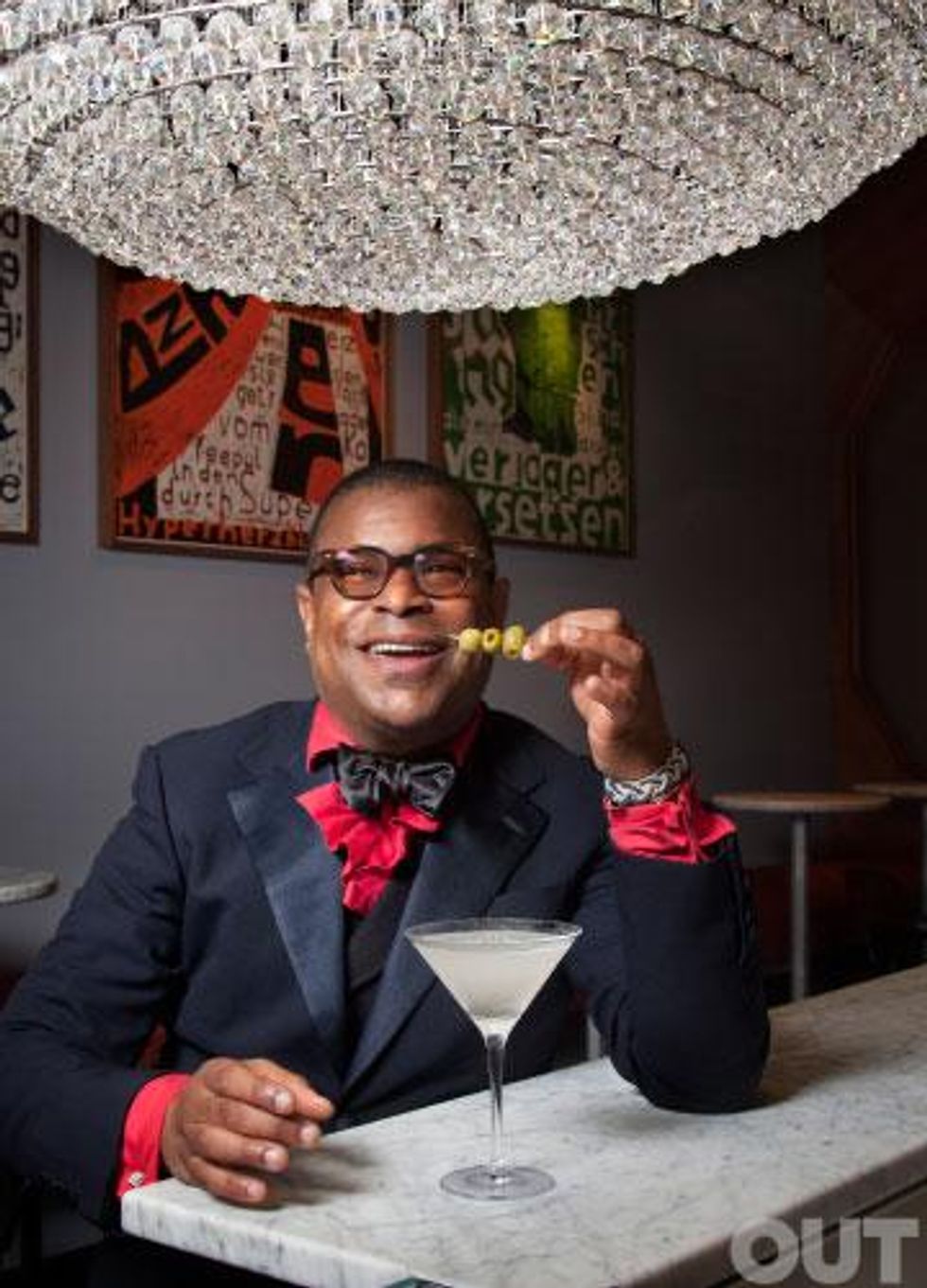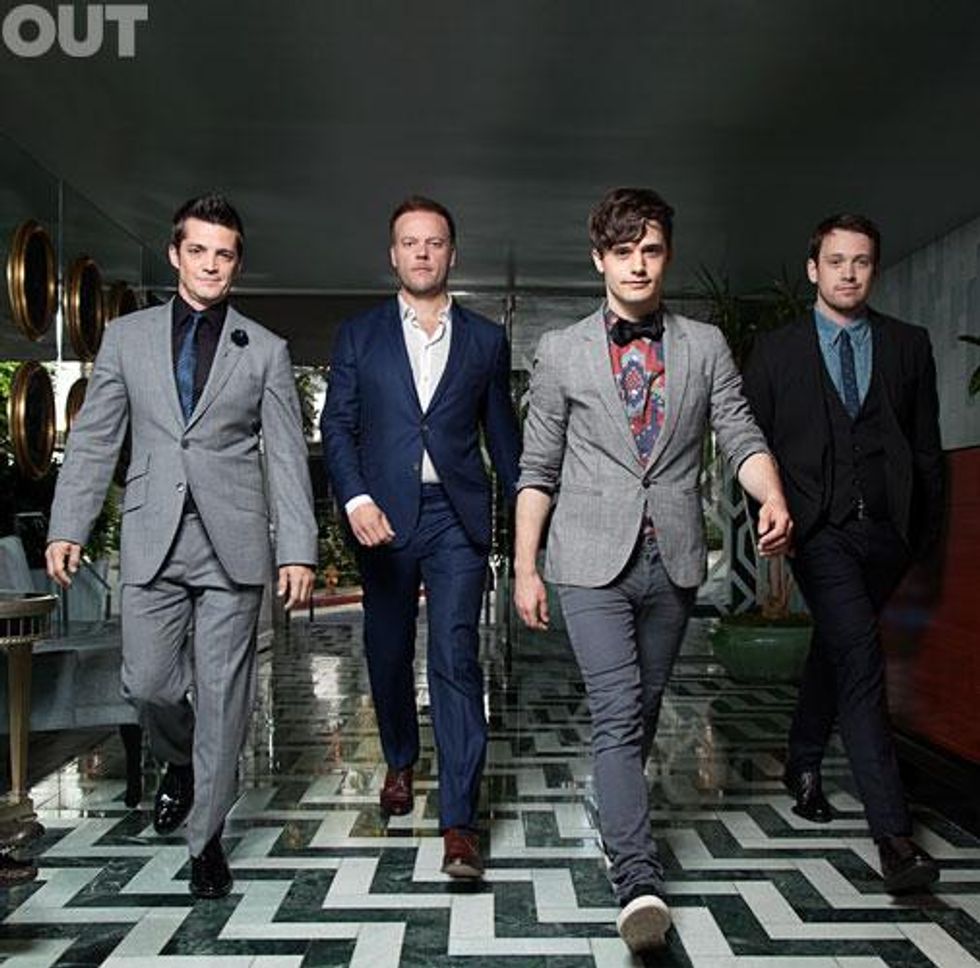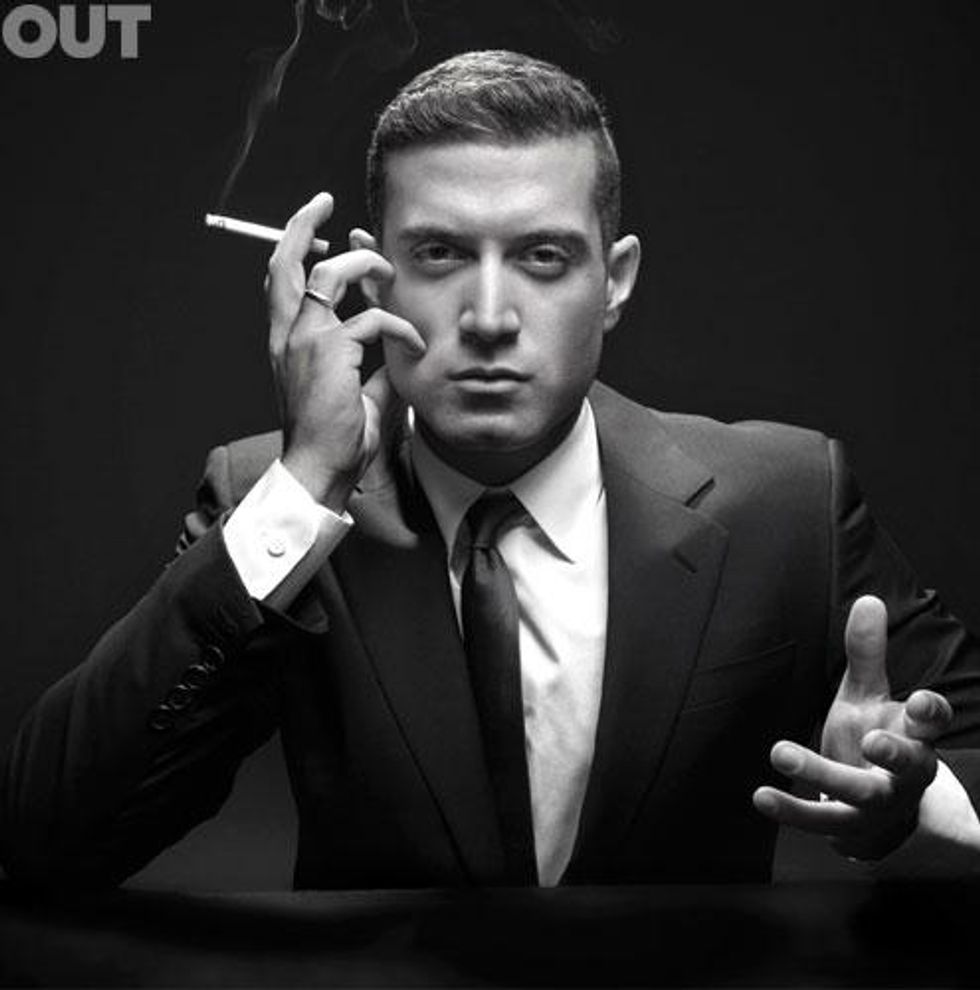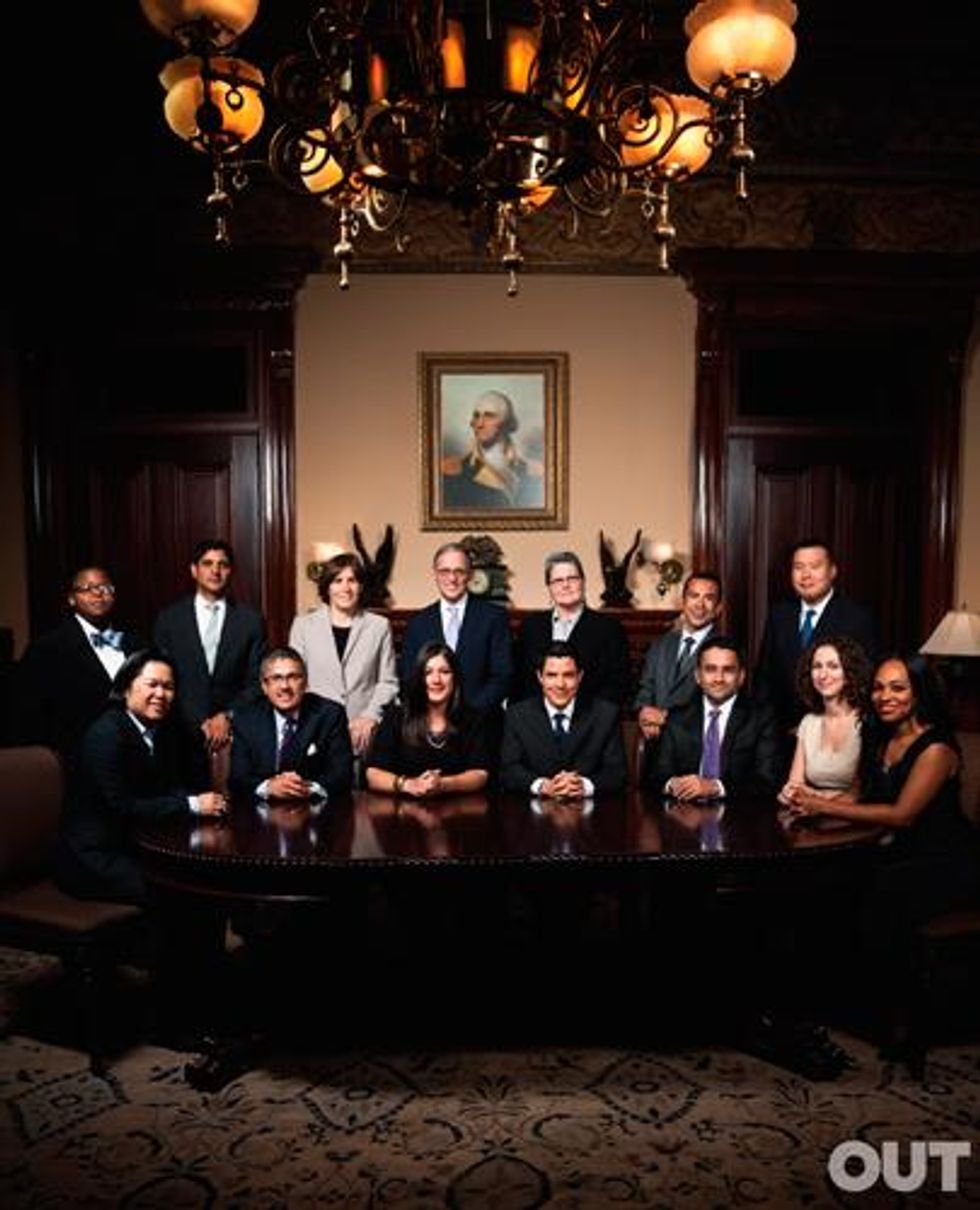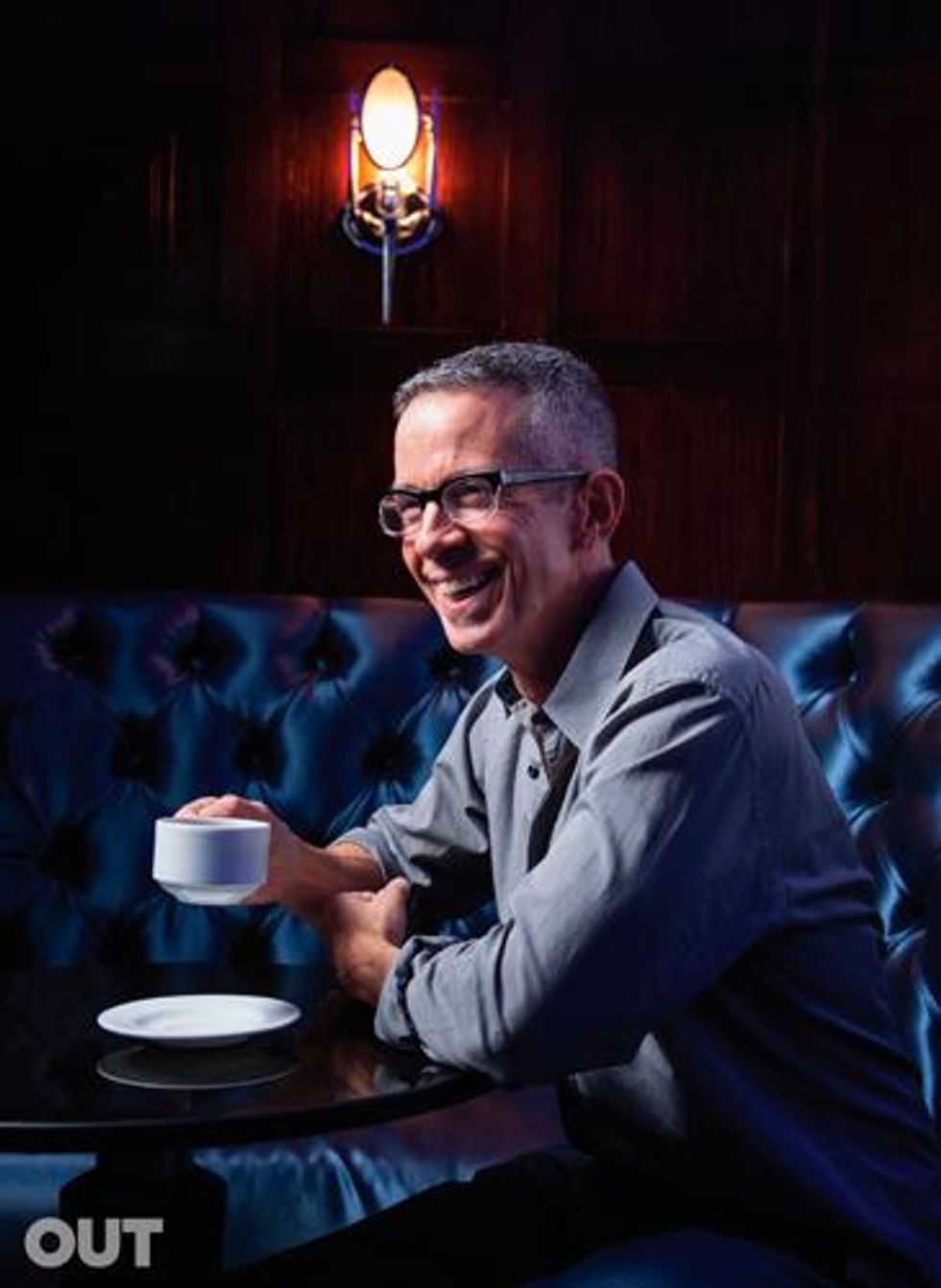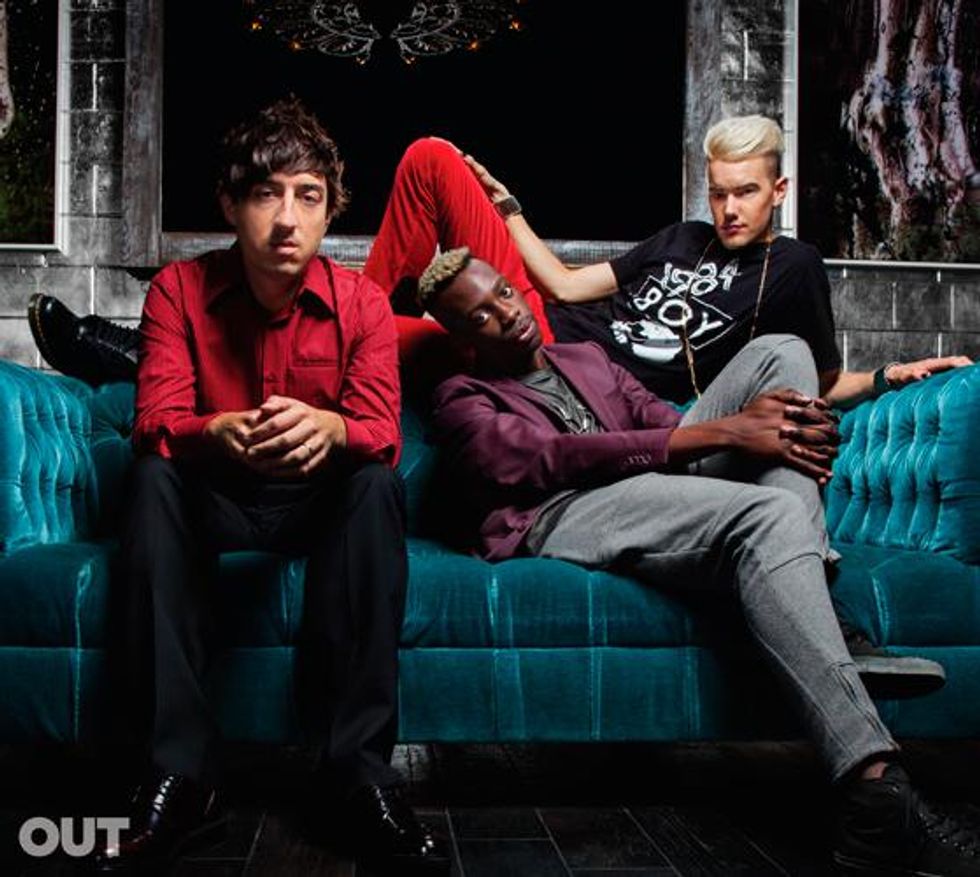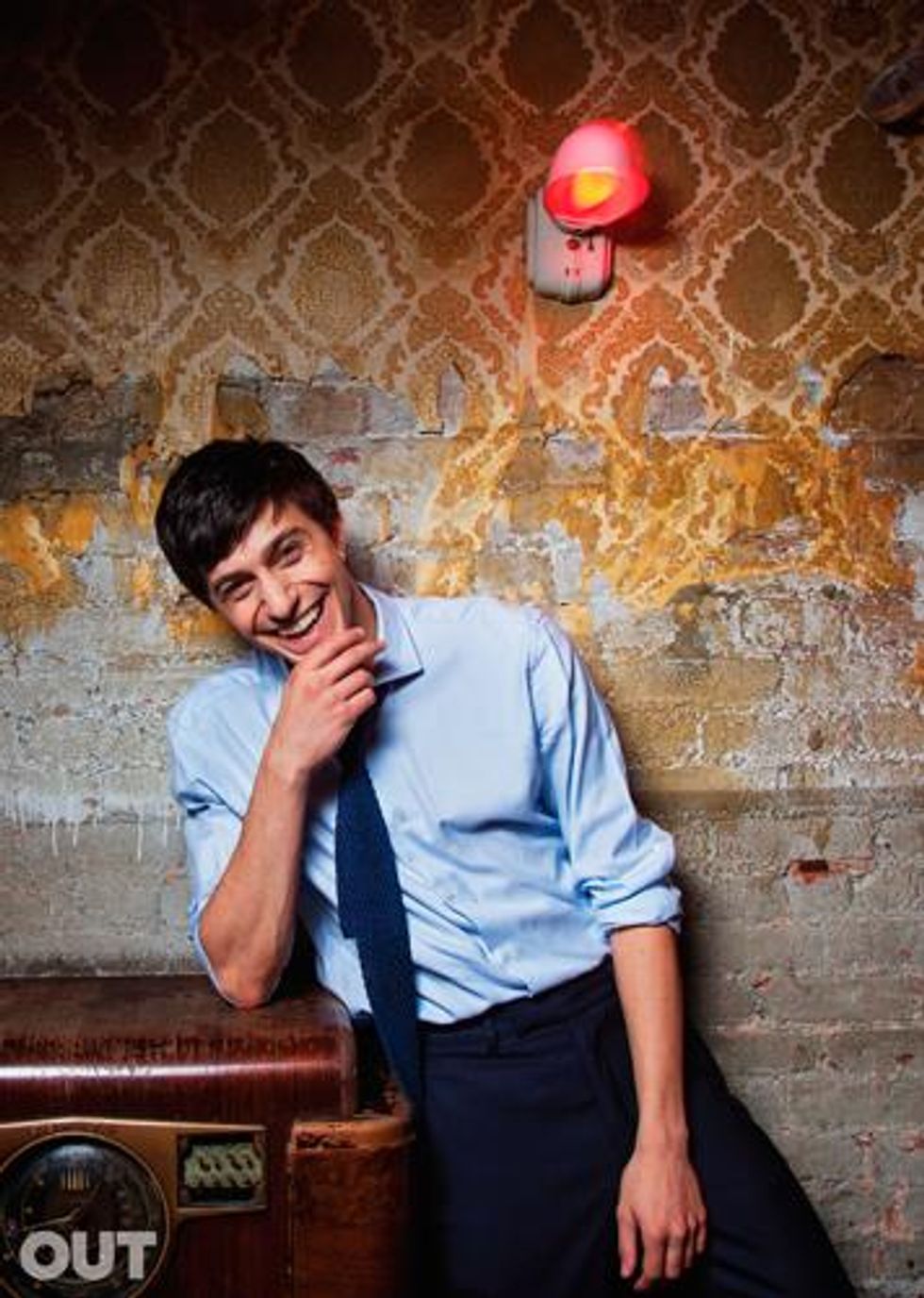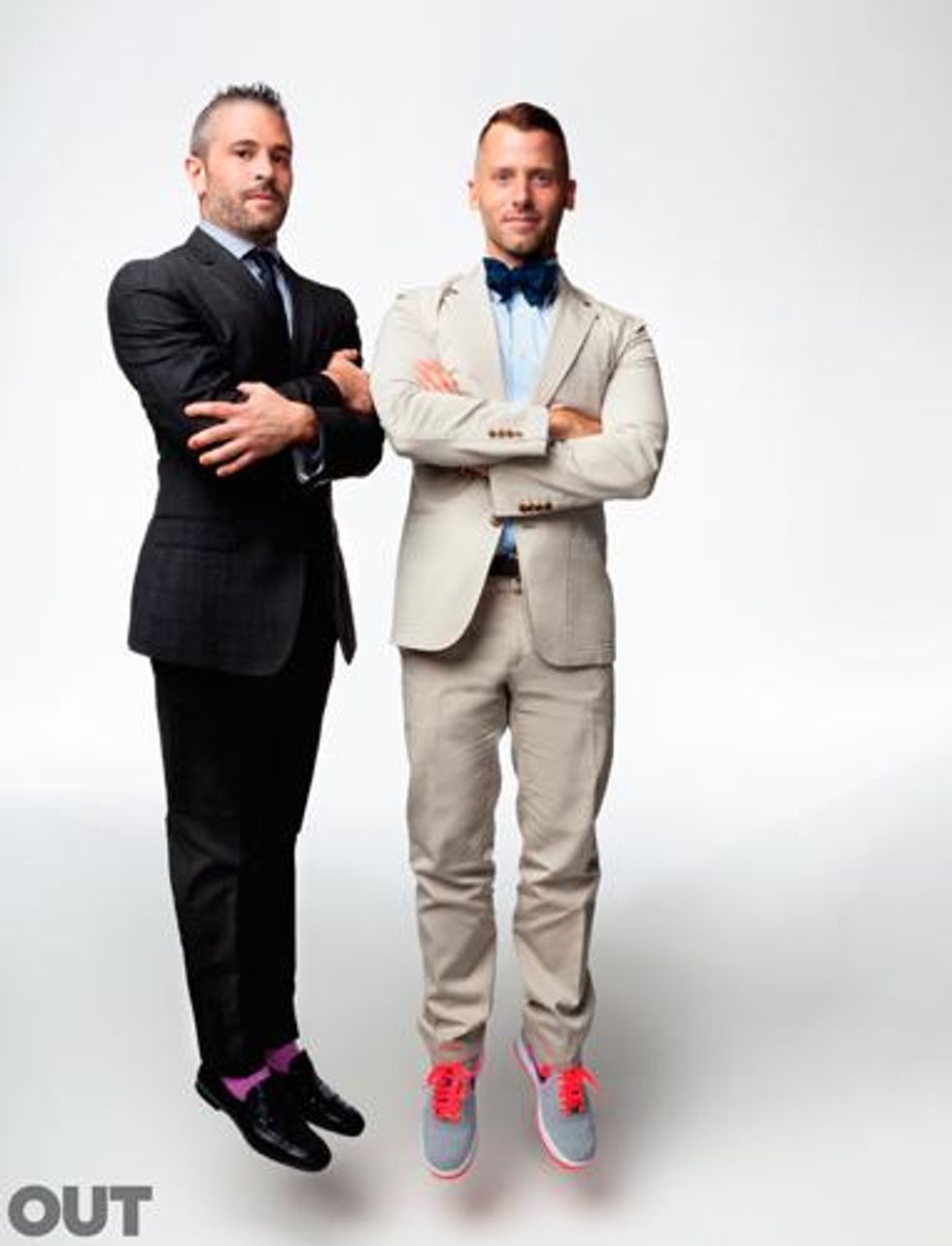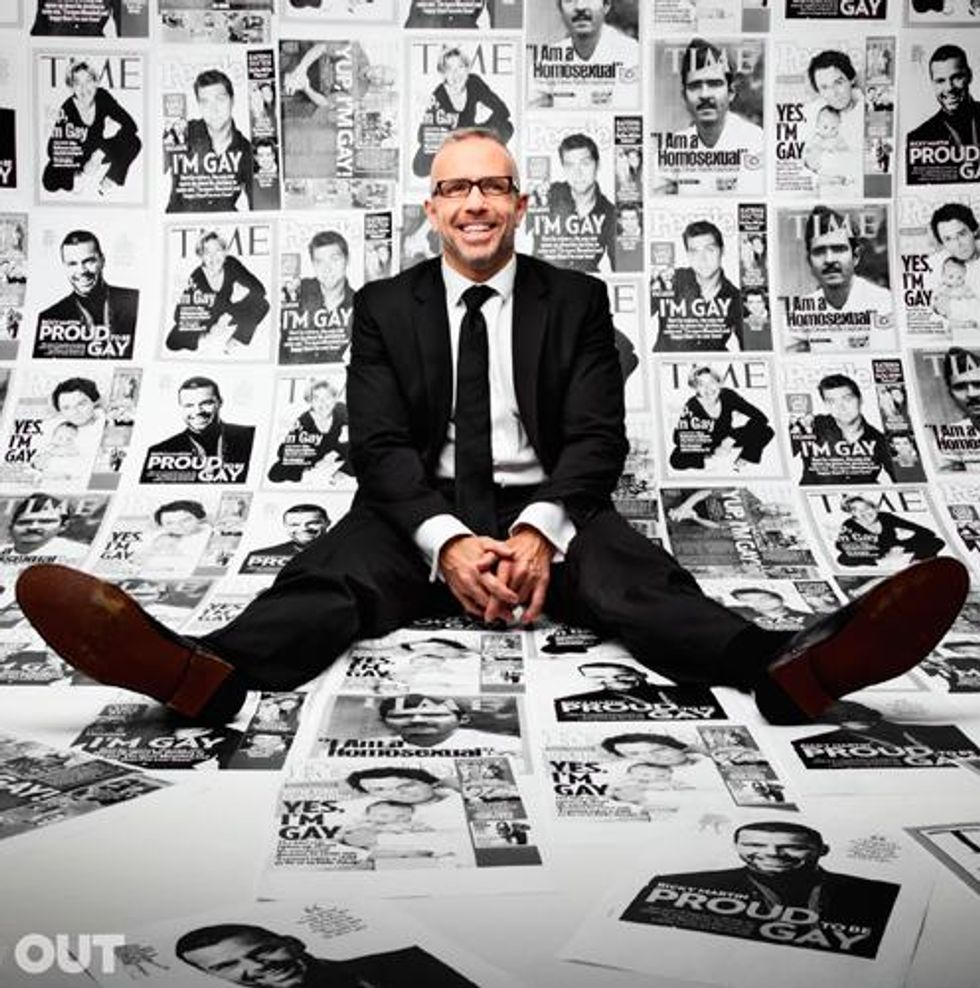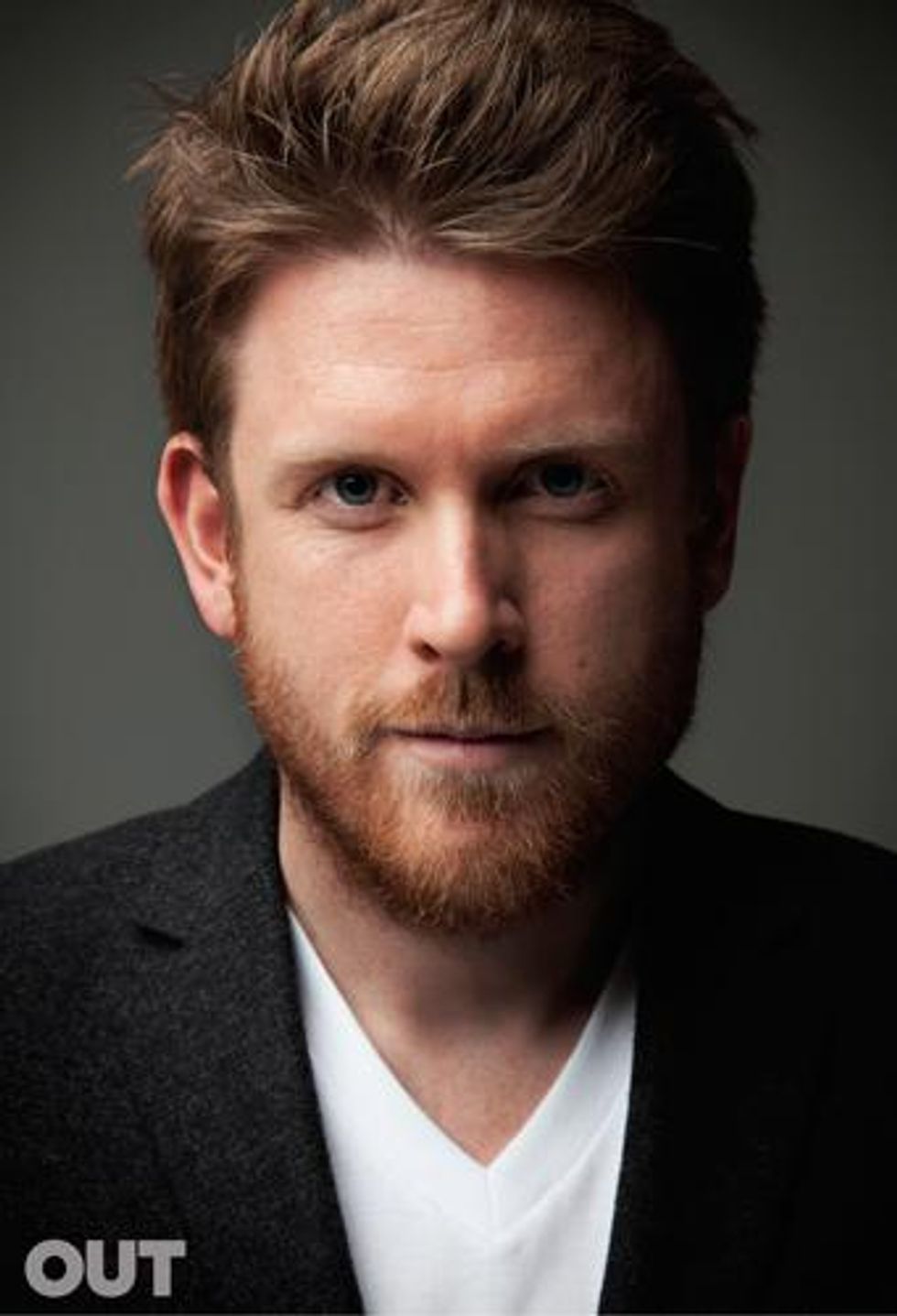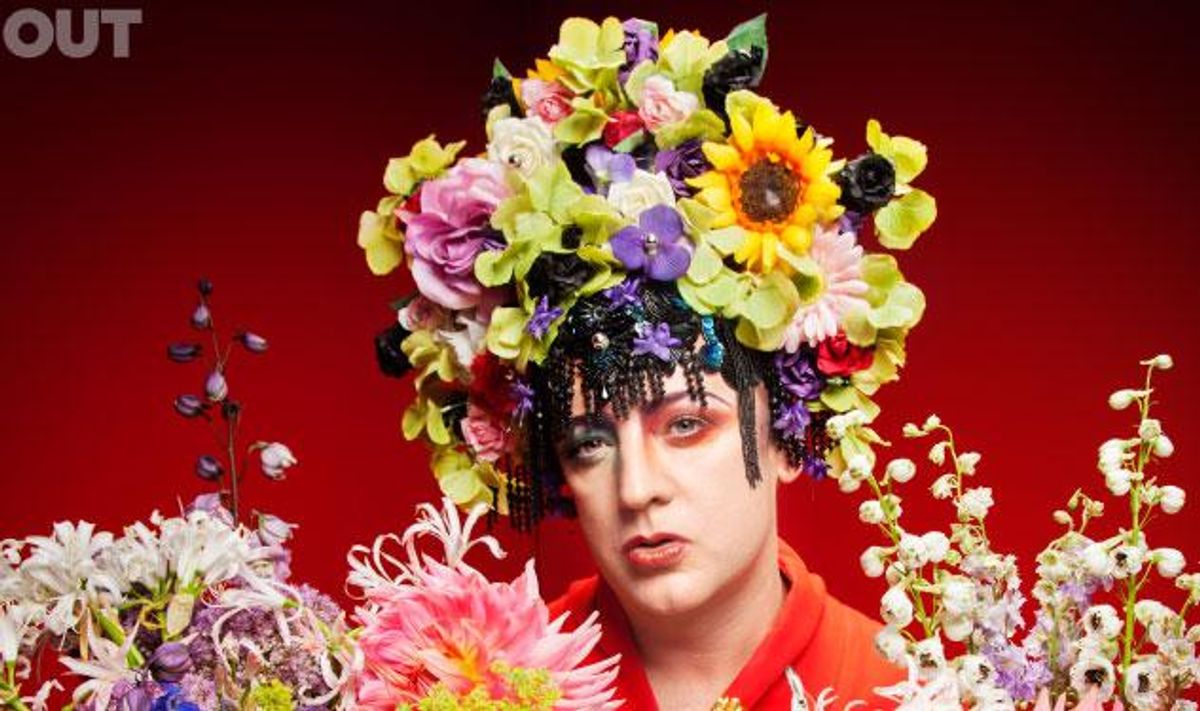
Photography by M. Sharkey
Boy George has a very clear memory of sitting in jail on January 20, 2009, and watching the inauguration of Barack Obama. "I remember thinking, Oh my God, I should be there! What happened? How did I get here?" he says. It was a pivotal moment for the legendary singer, who'd recorded his own Obama tribute, "Yes, We Can," in part as a testament to his own voyage of self-discovery and change. "What I've discovered as I've gotten older is that happiness is a choice," he says, reflecting on the seismic shifts in his thinking and attitude in the years since his lonely prison vigil. "Of course life throws things at you, but I would say, in my life at least, that a lot of the awful stuff has been self-inflicted."
It's also been highly public, documented by Britain's voracious tabloids, as the Culture Club idol -- who blazed a trail for queer youth 30 years ago with a handful of era-defining songs -- struggled with cocaine and heroin addiction, and later with a series of humiliating arrests. Through it all he has continued to make music, sometimes as a solo musician, sometimes with his old band, and most frequently as an international DJ. "As I've traveled around the world to places that wouldn't let me in back in the day, like Argentina or Russia, one of the things I've been struck by is the number of people who've said, 'You're the reason I came out,' " he says. "In the past I might have taken that a bit lightly, and now I feel that it's a real responsibility. What I've realized is that the world hasn't changed -- there are still lots of places where people are having a really, really hard time because of their sexuality, and I think one of the most important things I can do is be a self-respecting gay public figure."
Boy George's dramatic arrival in 1982 -- "Do You Really Want to Hurt Me" topped the charts in a dozen countries and reached No. 2 in the U.S. -- coincided with the advent of AIDS, when his message of pride and self-empowerment was most in need. "If you go back to the beginning, part of my whole plan was to create this universal family of disenfranchised people," says the musician. "It wasn't just about sexuality, it was about anyone who felt odd." Thirty years on, you can see derivations of that in the way a musician like Lady Gaga presents herself, though without the same radical subtext that made Culture Club so provocative and thrilling. "Anyone can dress like a freak -- it's easy," says Boy George. "It's what you think that really sets you apart from other people. There are a lot of people dressed up at the moment who have nothing to say."
Photographed at Spring Studios in London on September 25, 2012
















































